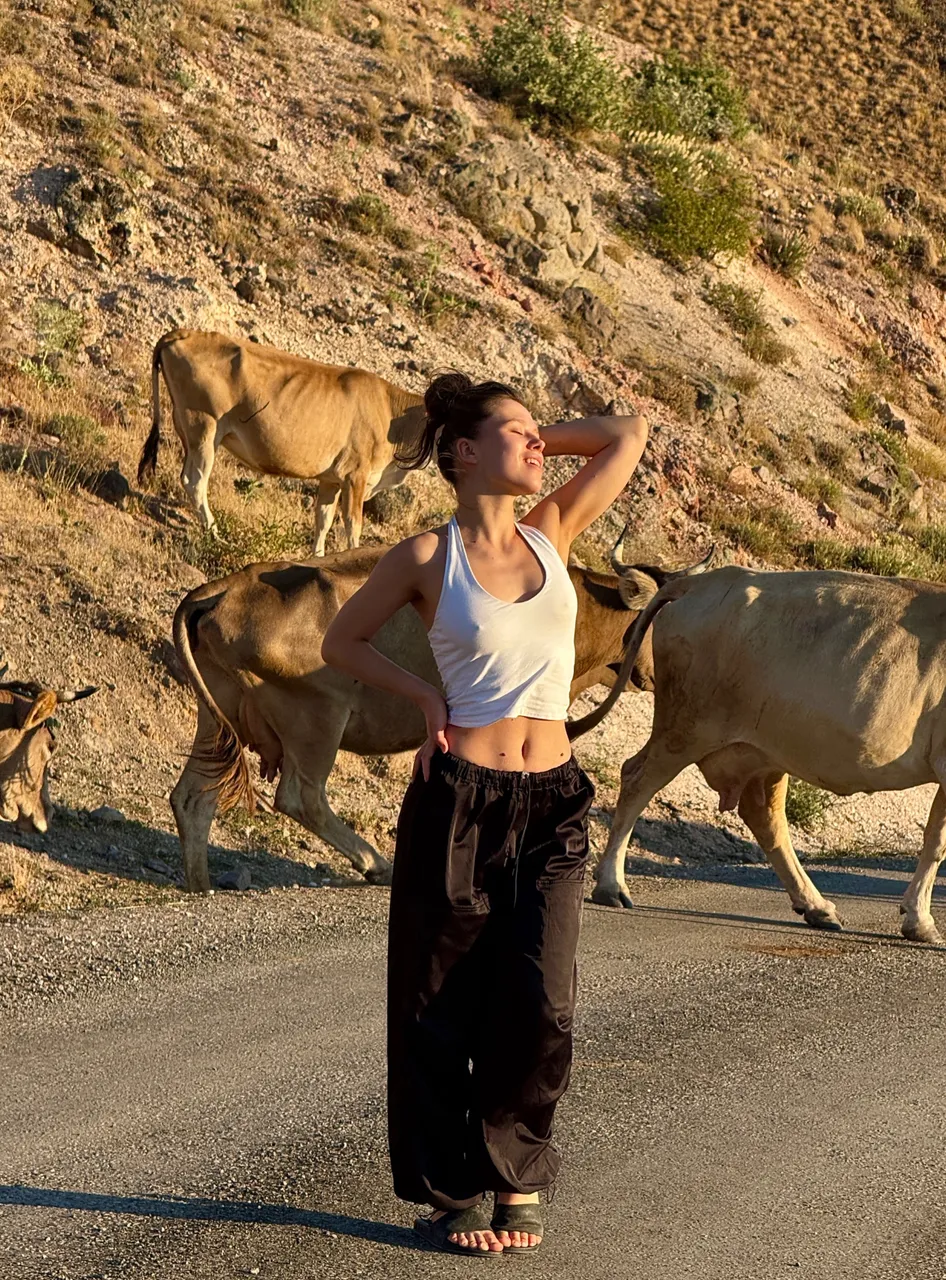
Recently, I explored, discovered, opened, dug up for myself incredible endless green spaces that stretch for many kilometers, hiding many beautiful pearls. Unique nooks, various tons of animals, streams, small rivers, mountains, rocks, thorny bushes, grasses, flowers, stones of wonders that nature has created.
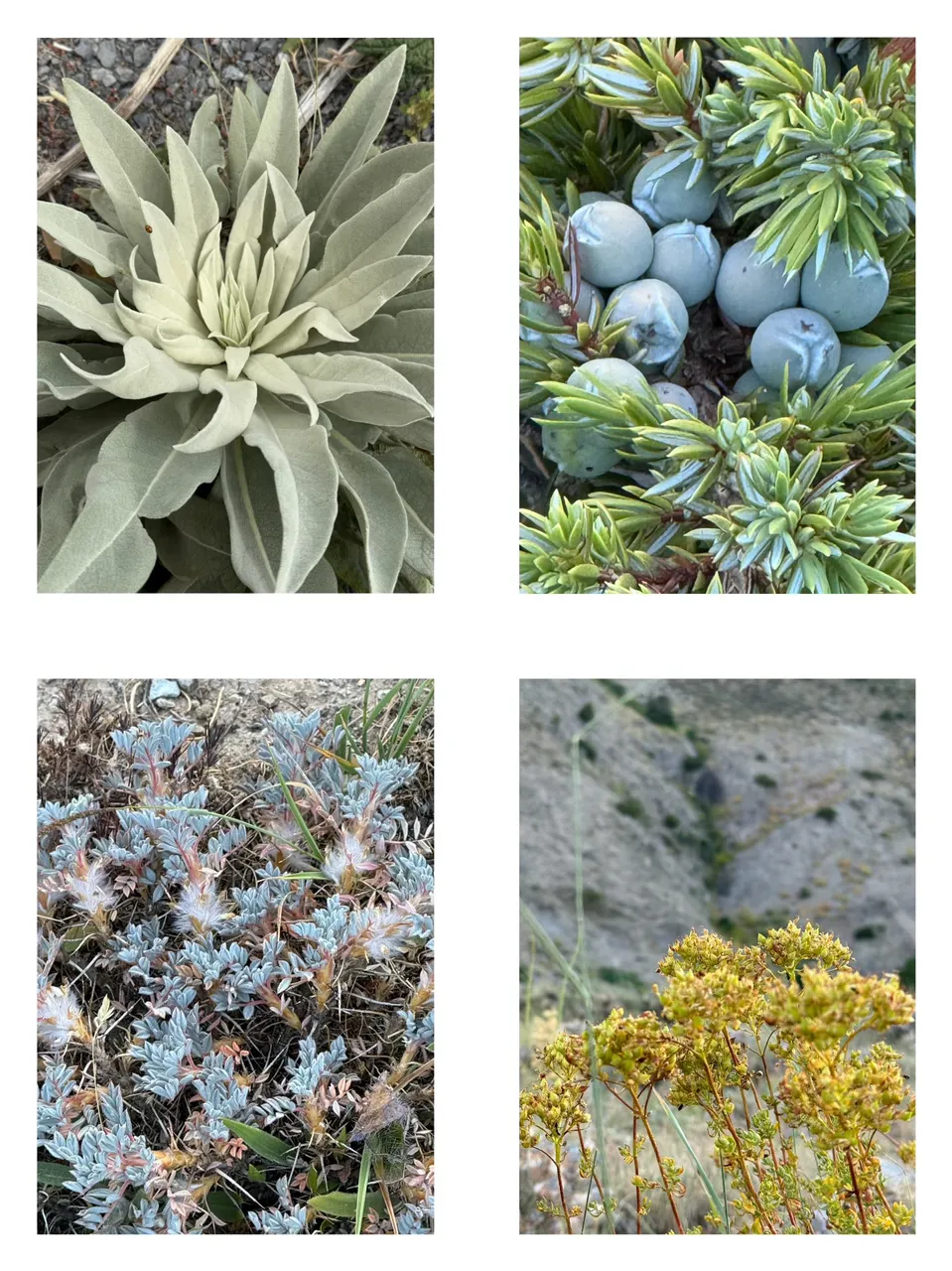
And I am very happy that one day fate brought me there. Having such a wonderful means of transportation as a car, driving many kilometers between these mountains, I collected a very large amount of incredible content.
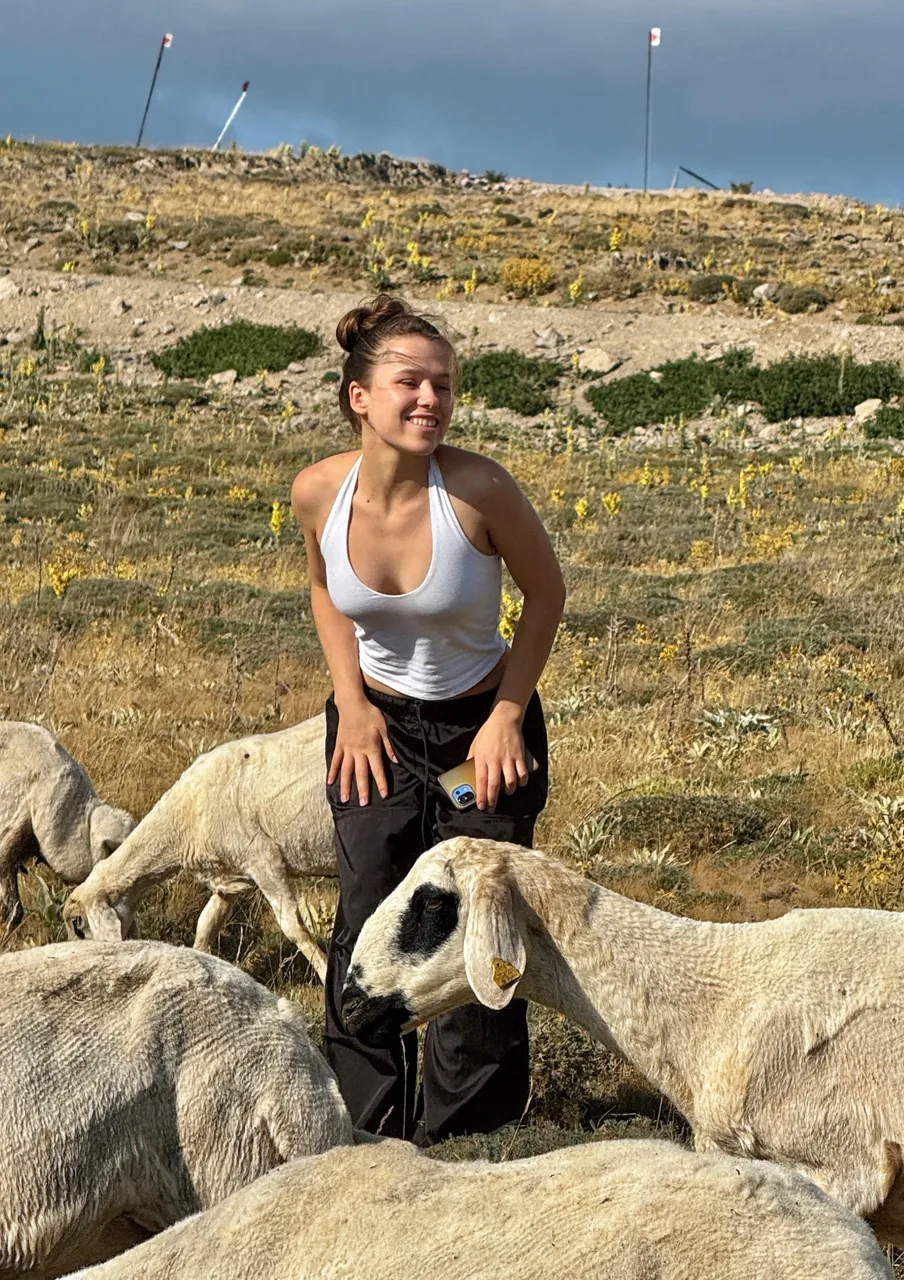
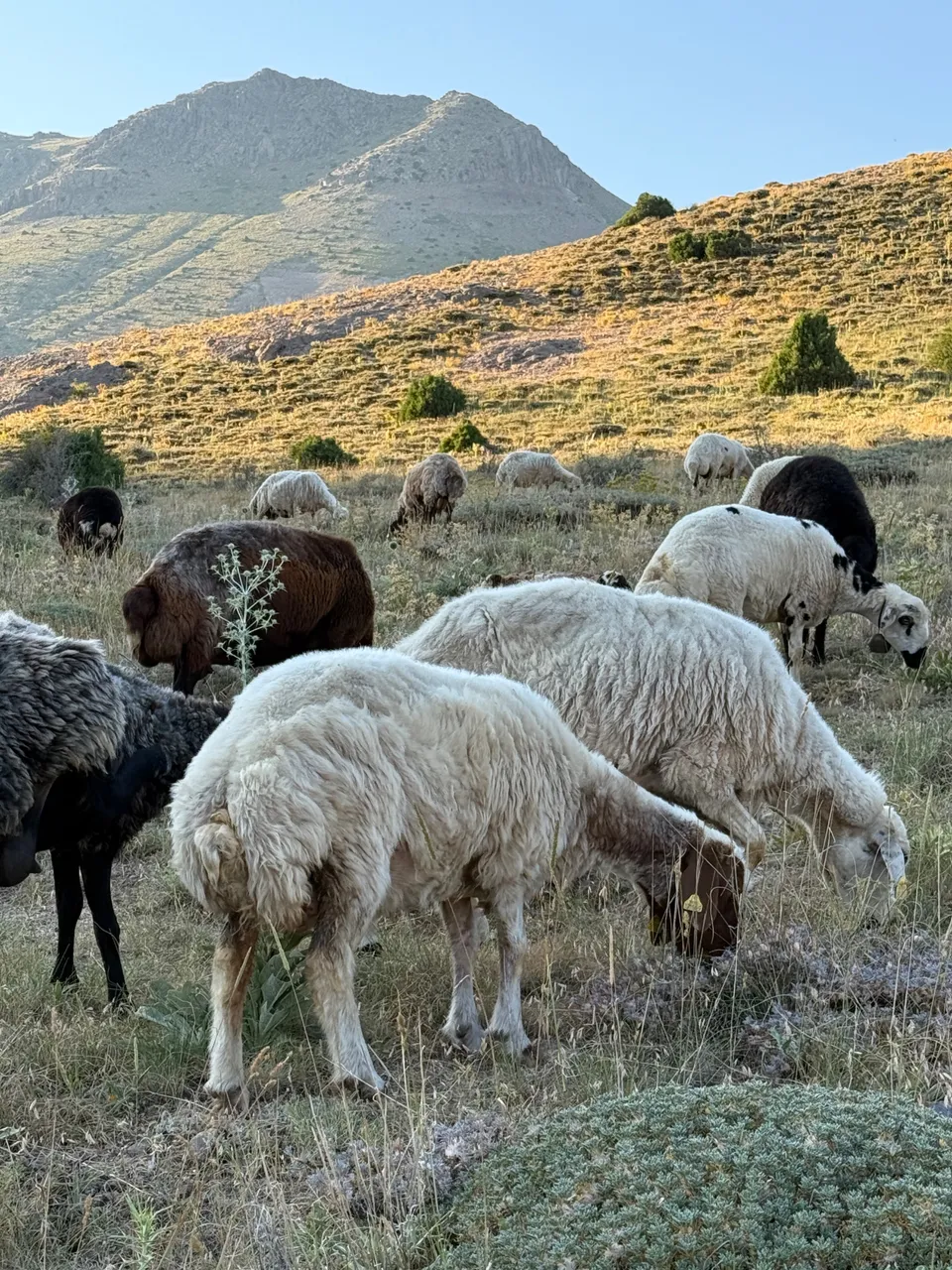
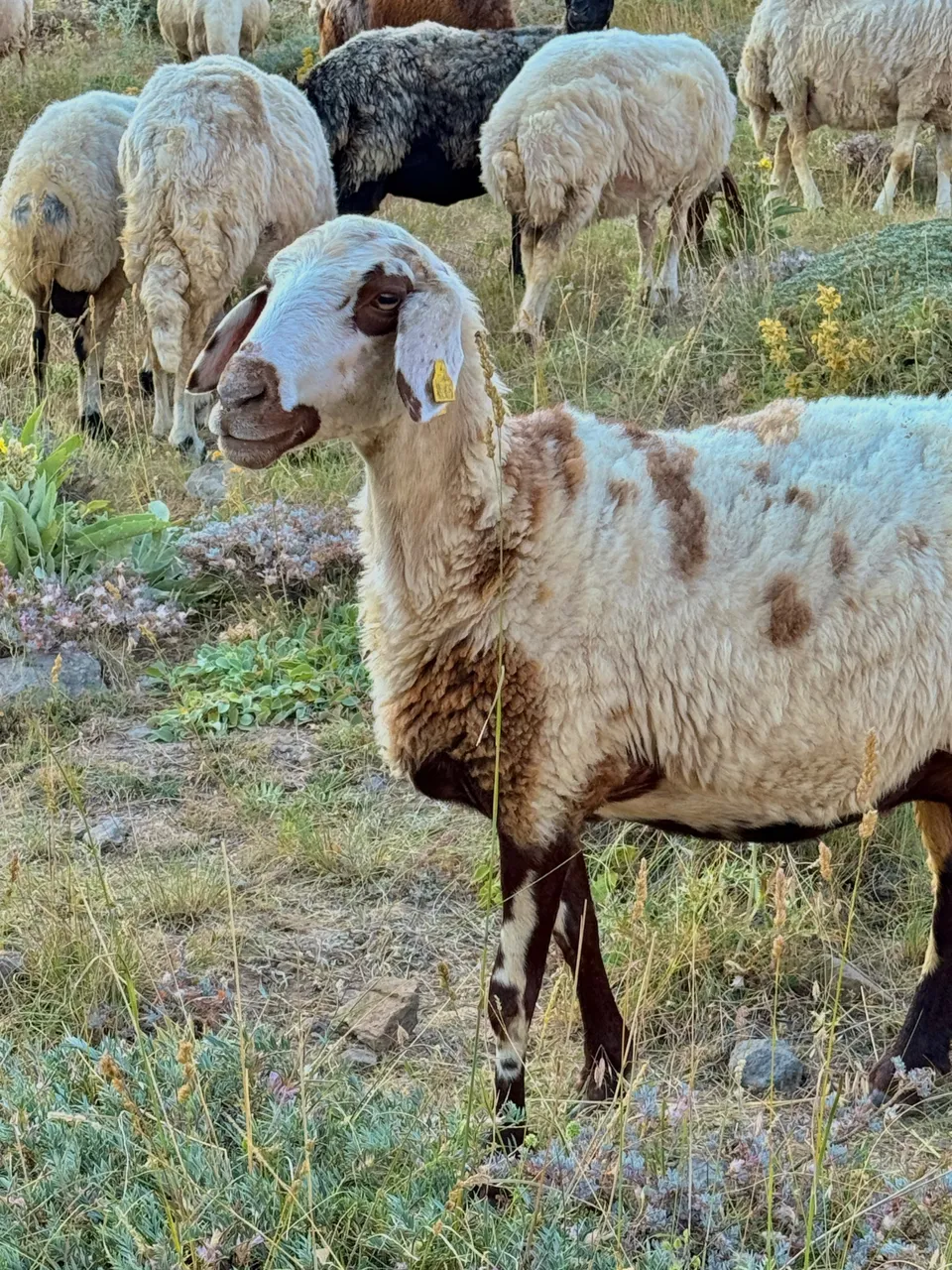
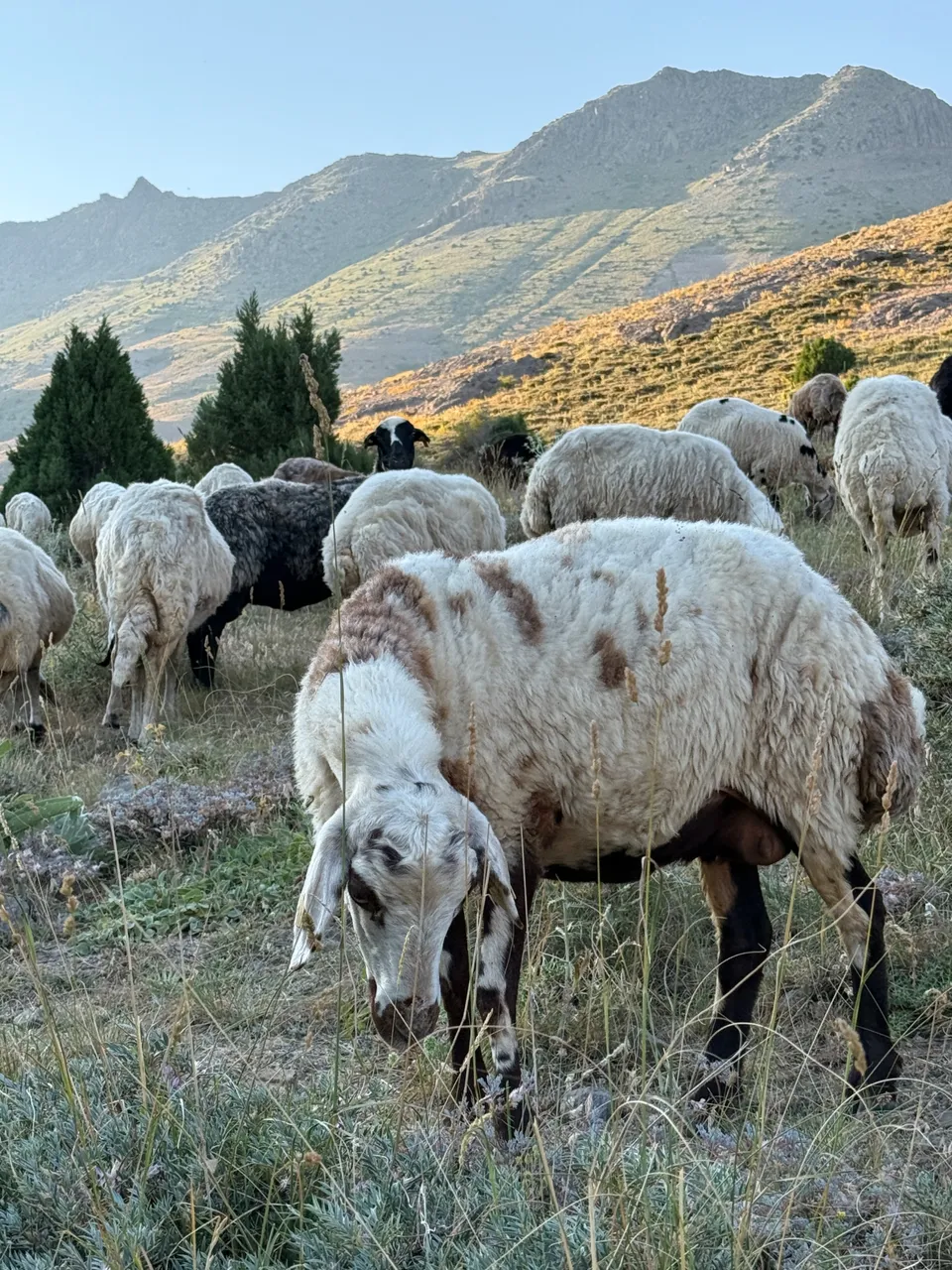
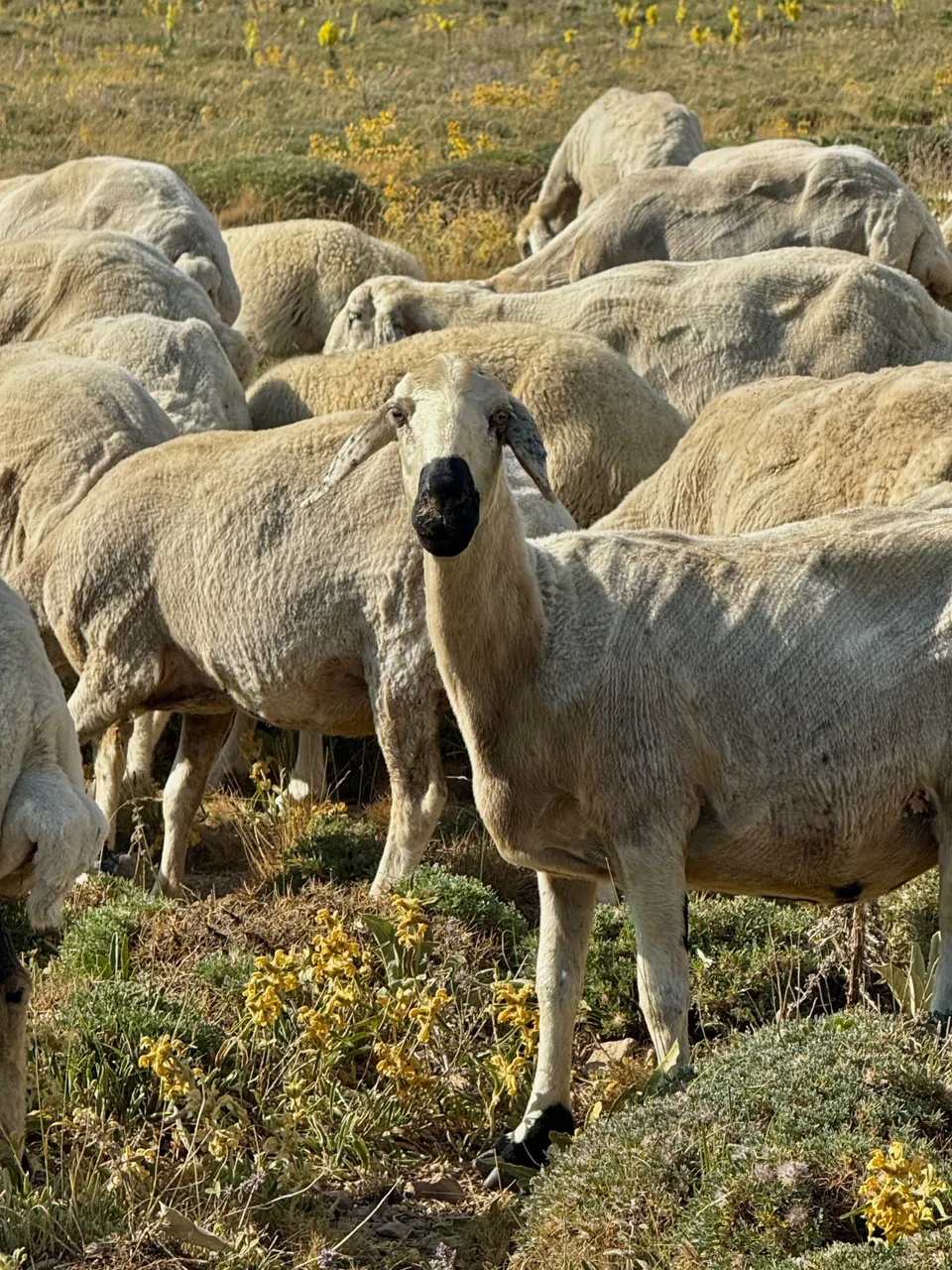
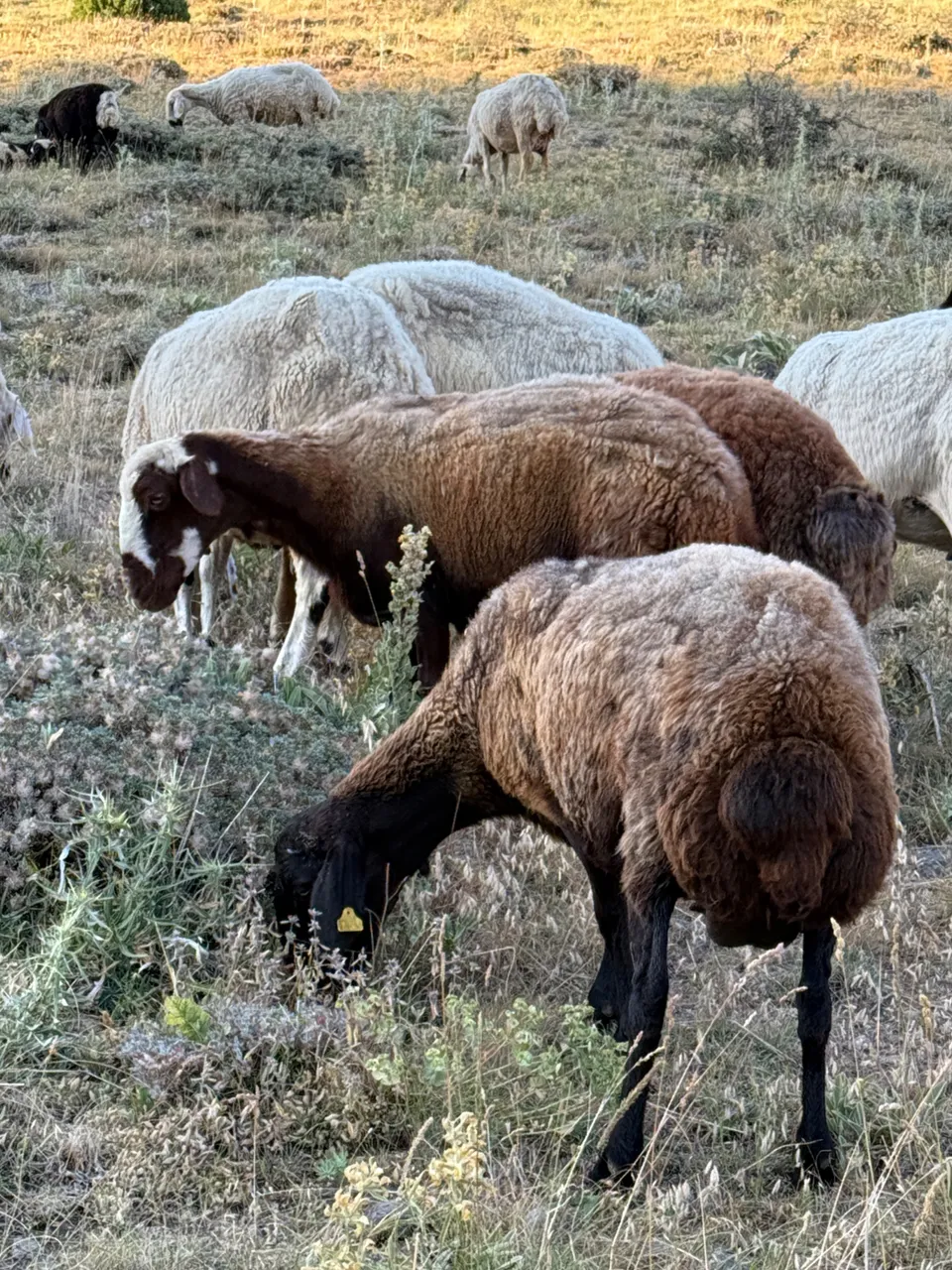
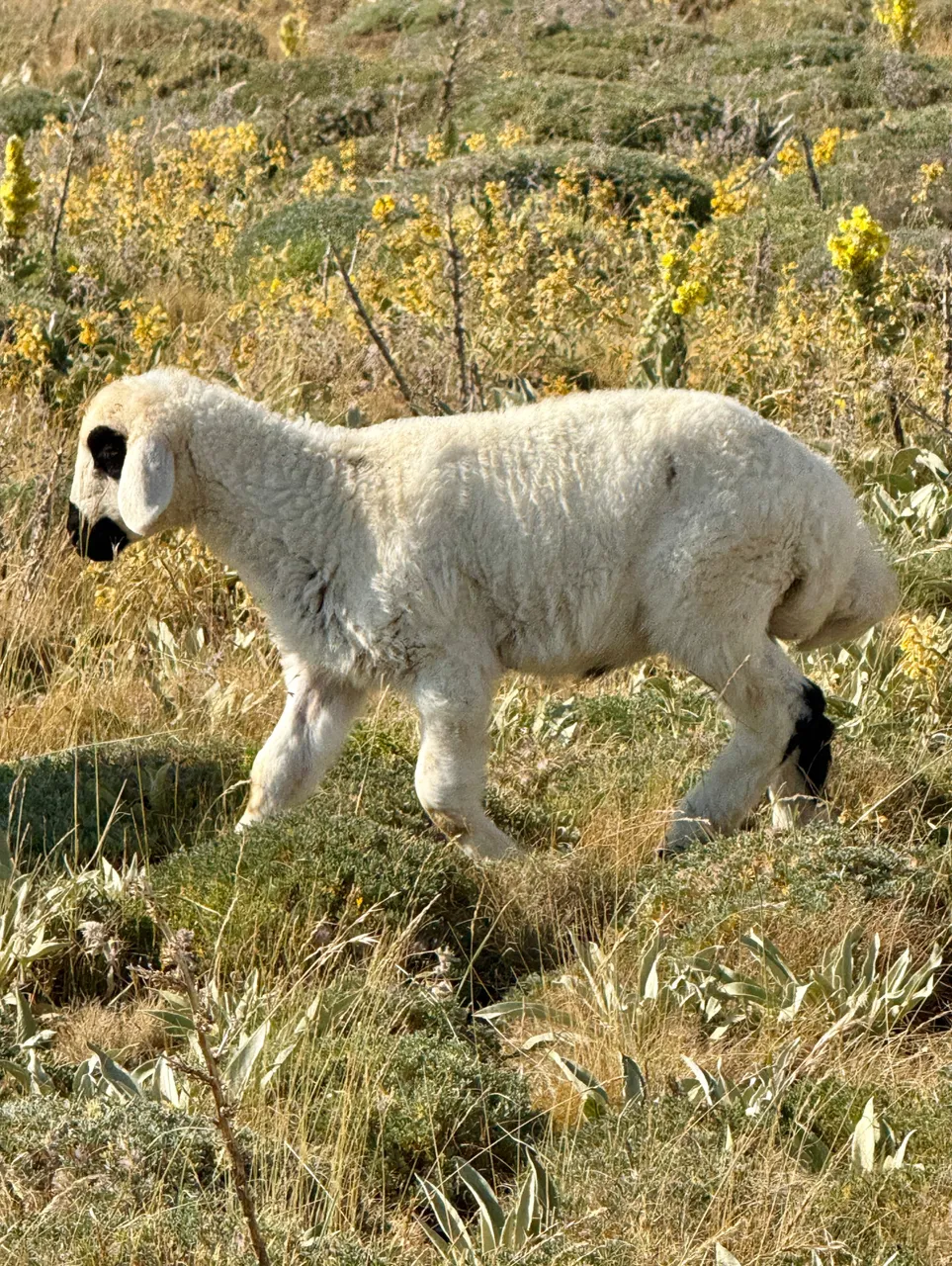
And I also unexpectedly noticed that recently I have acquired some kind of crazy passion for sheep and domestic animals in general. I run along the mountain pastures, over the hills and hunt for a herd of sheep or cows that are resting or carefreely eating grass, and I am very happy catching every frame on my phone.
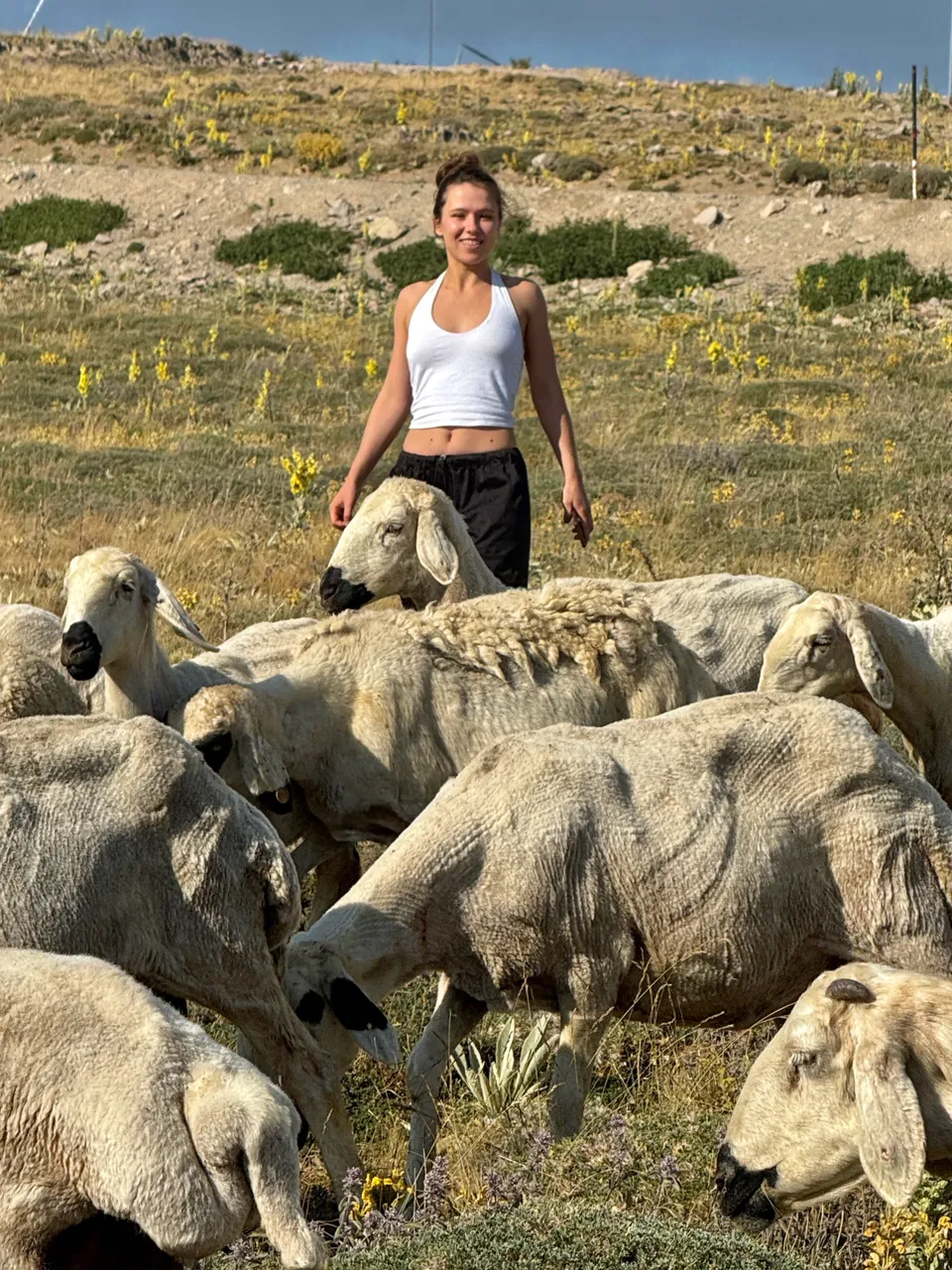
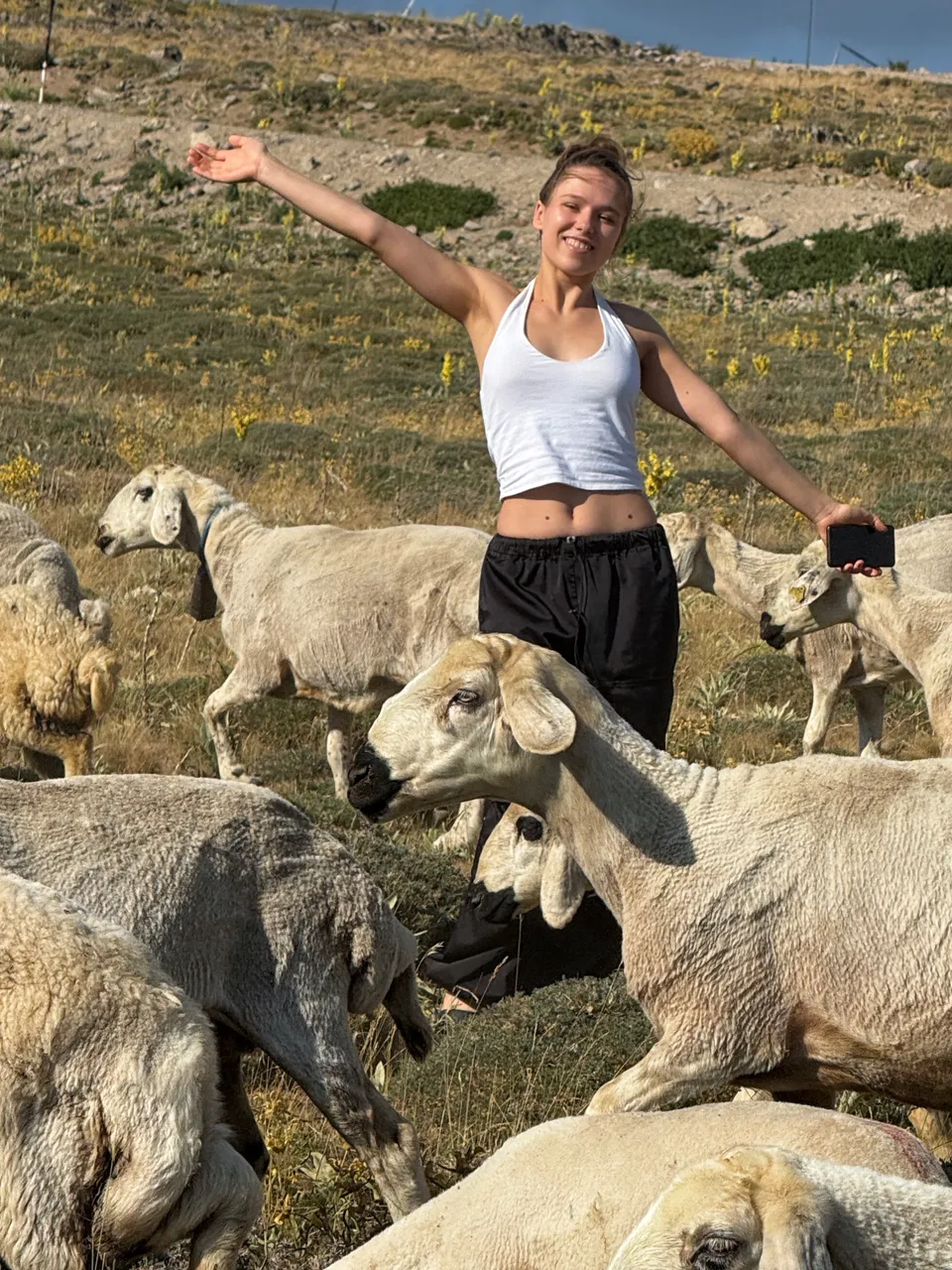
I run mercilessly and fearlessly into the very center of the running herd of sheep, rams and goats with a silly happy face and make my sister take a lot of videos. Against the background of cows and even one evening I was lucky to get a unique permission to hold a small, cute lamb in my arms like a baby. He was so cute, fluffy, soft.
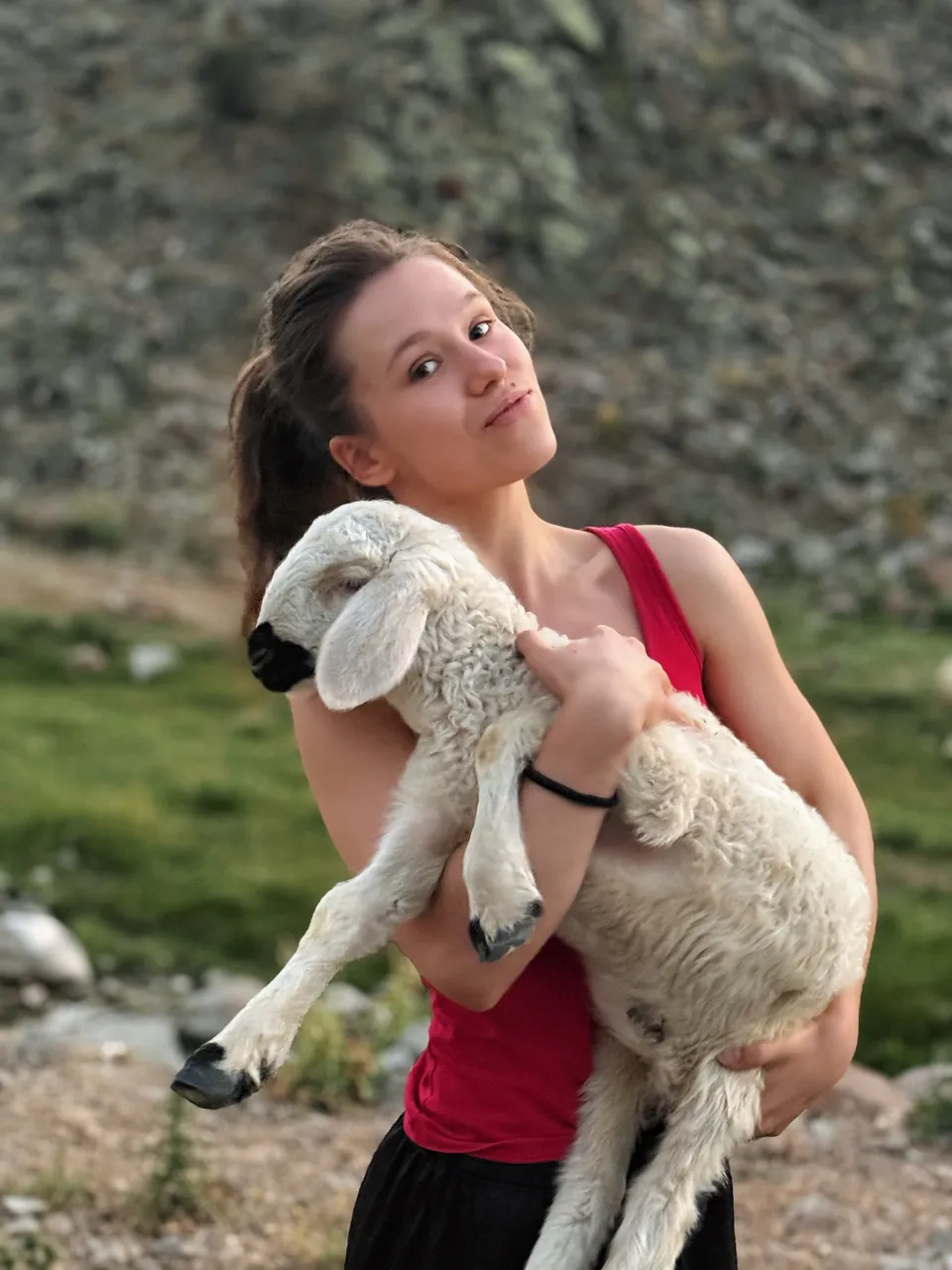
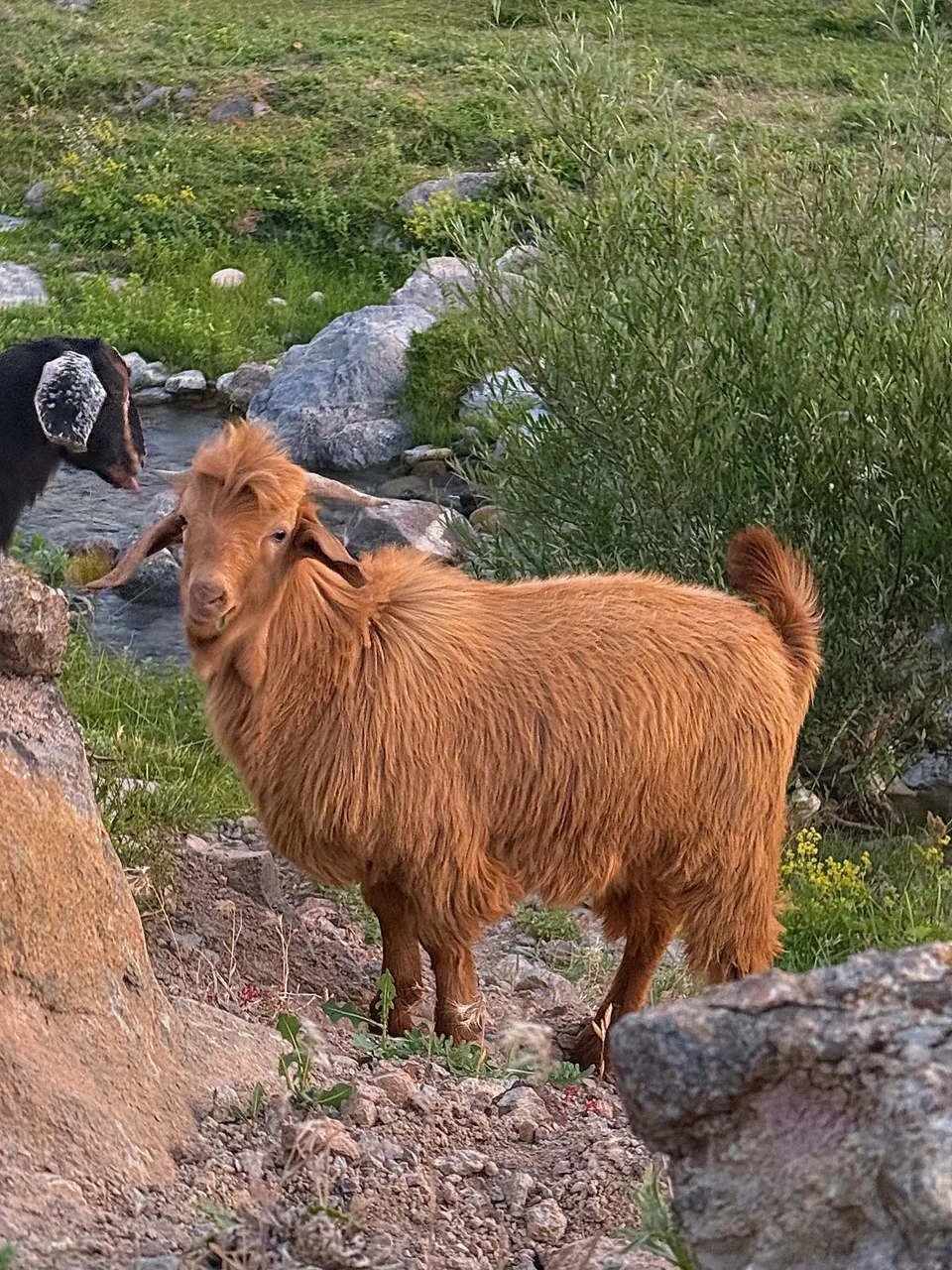
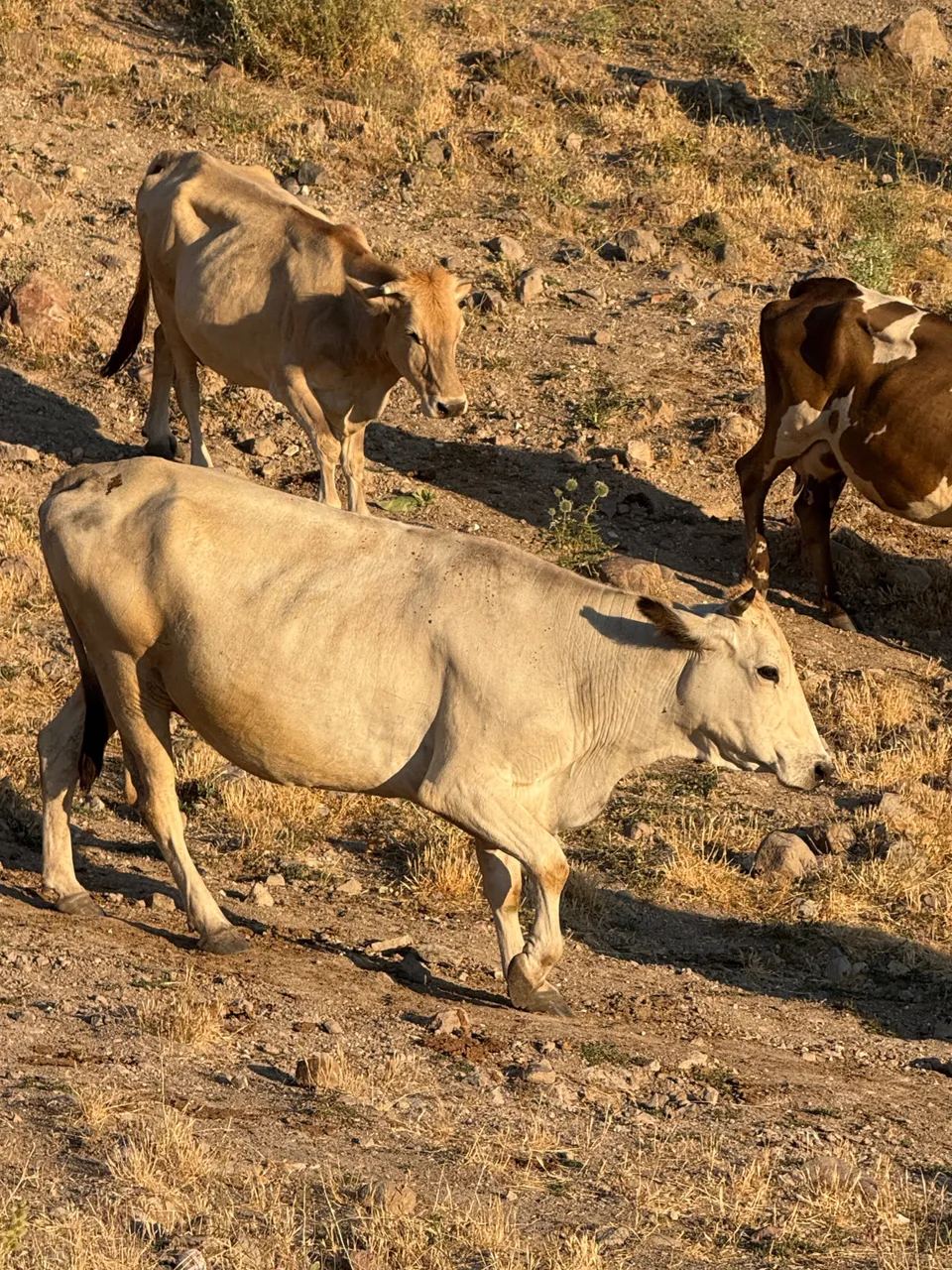
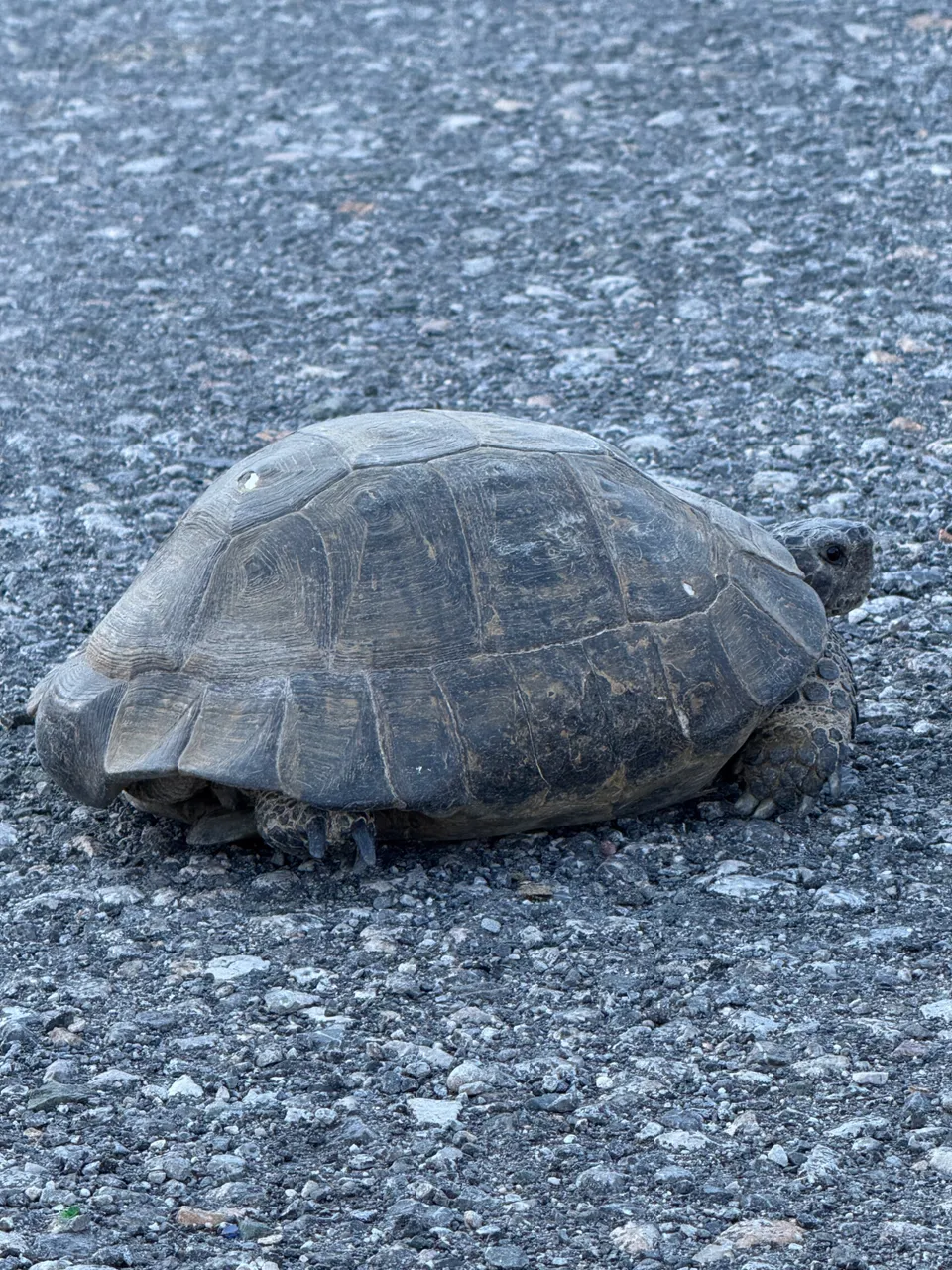
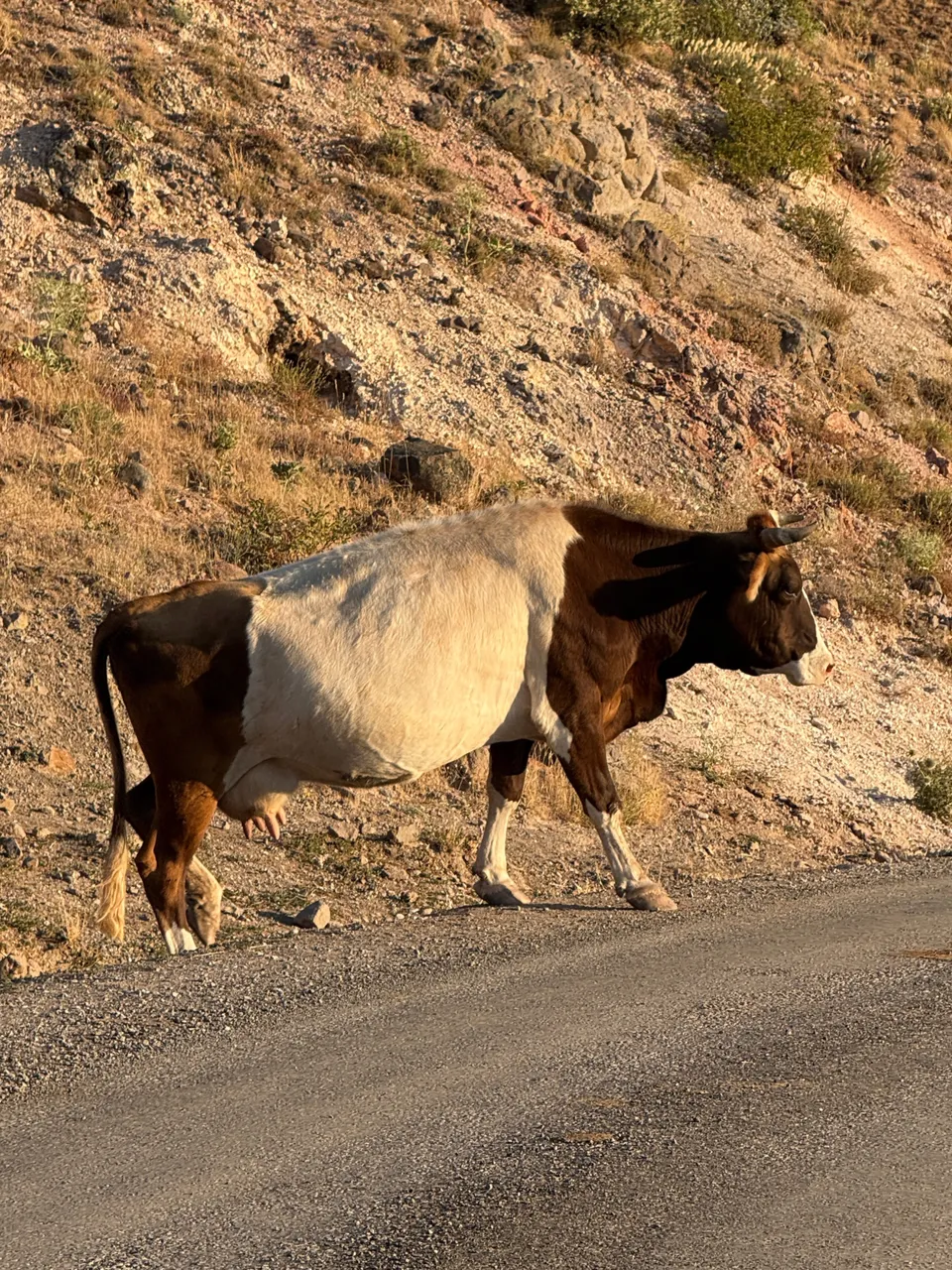
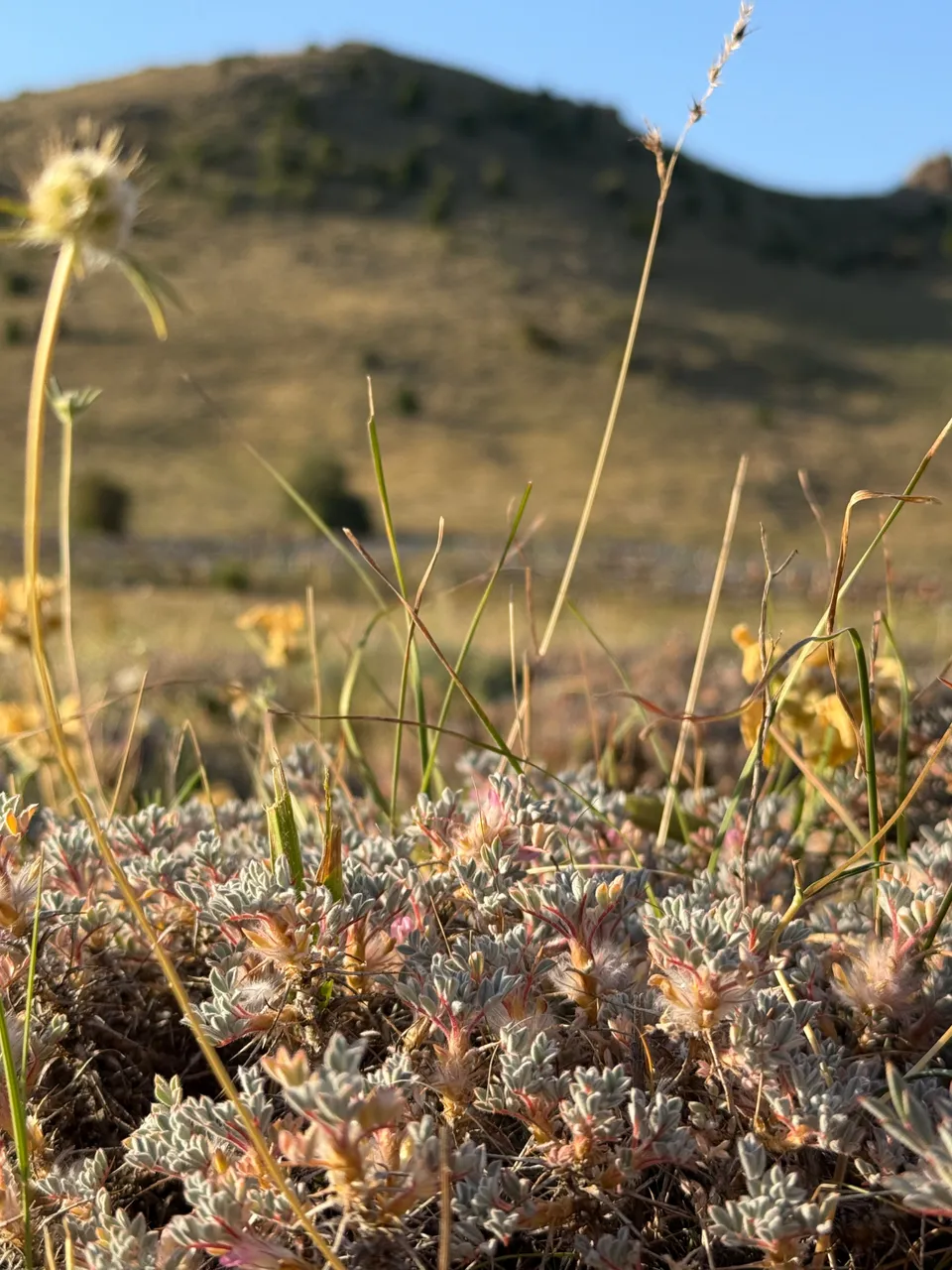
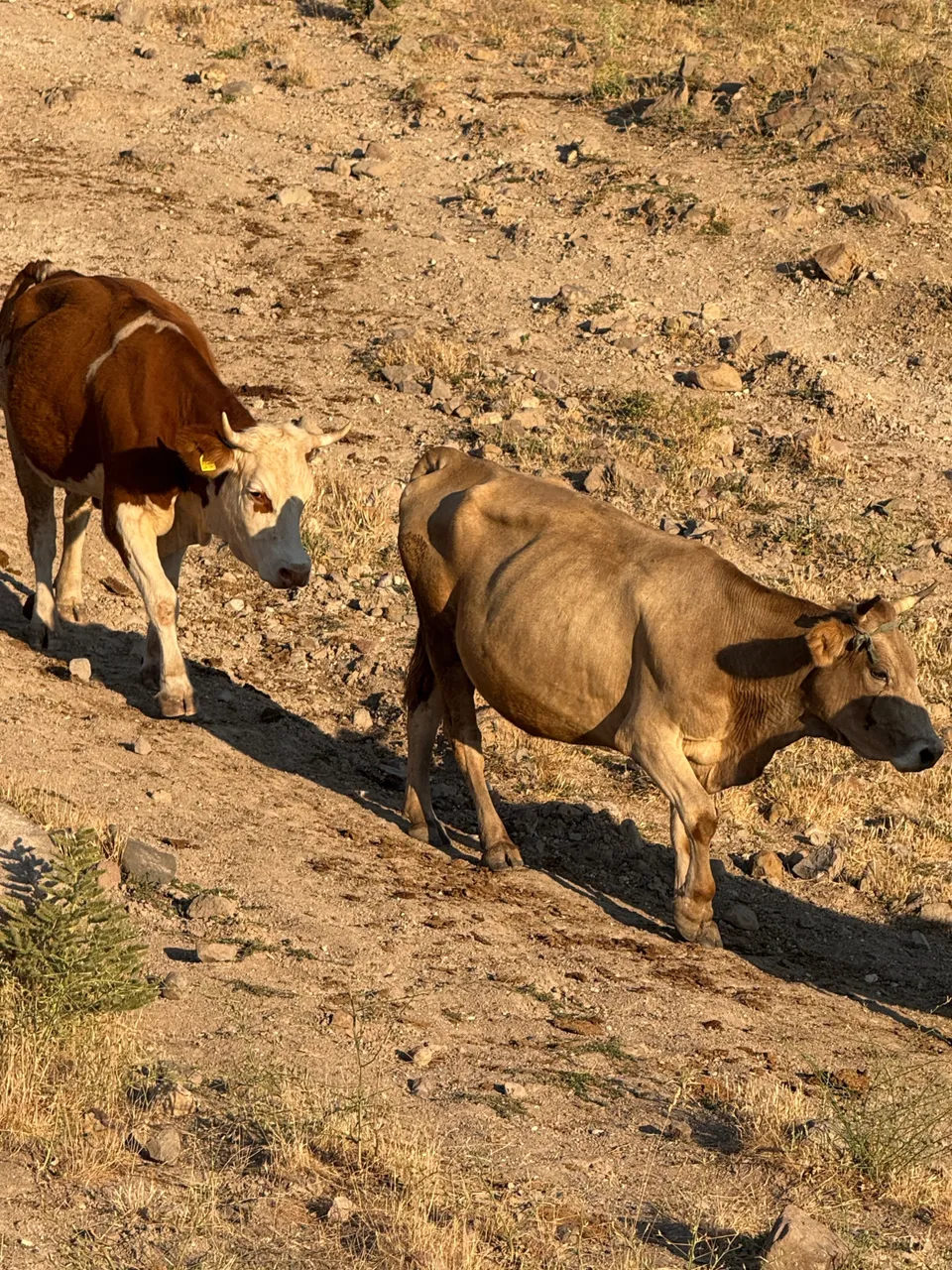
But he smelled a little like a goat and later I smelled like a goat all over, and my whole family smelled like a goat. But this is nothing compared to the emotions of this beautiful moment. When I found myself on these slopes, I felt that I was walking on land with a great history. On the bare hills you can see light gray boulders, in places covered with tiny colors, laid out like a natural puzzle.
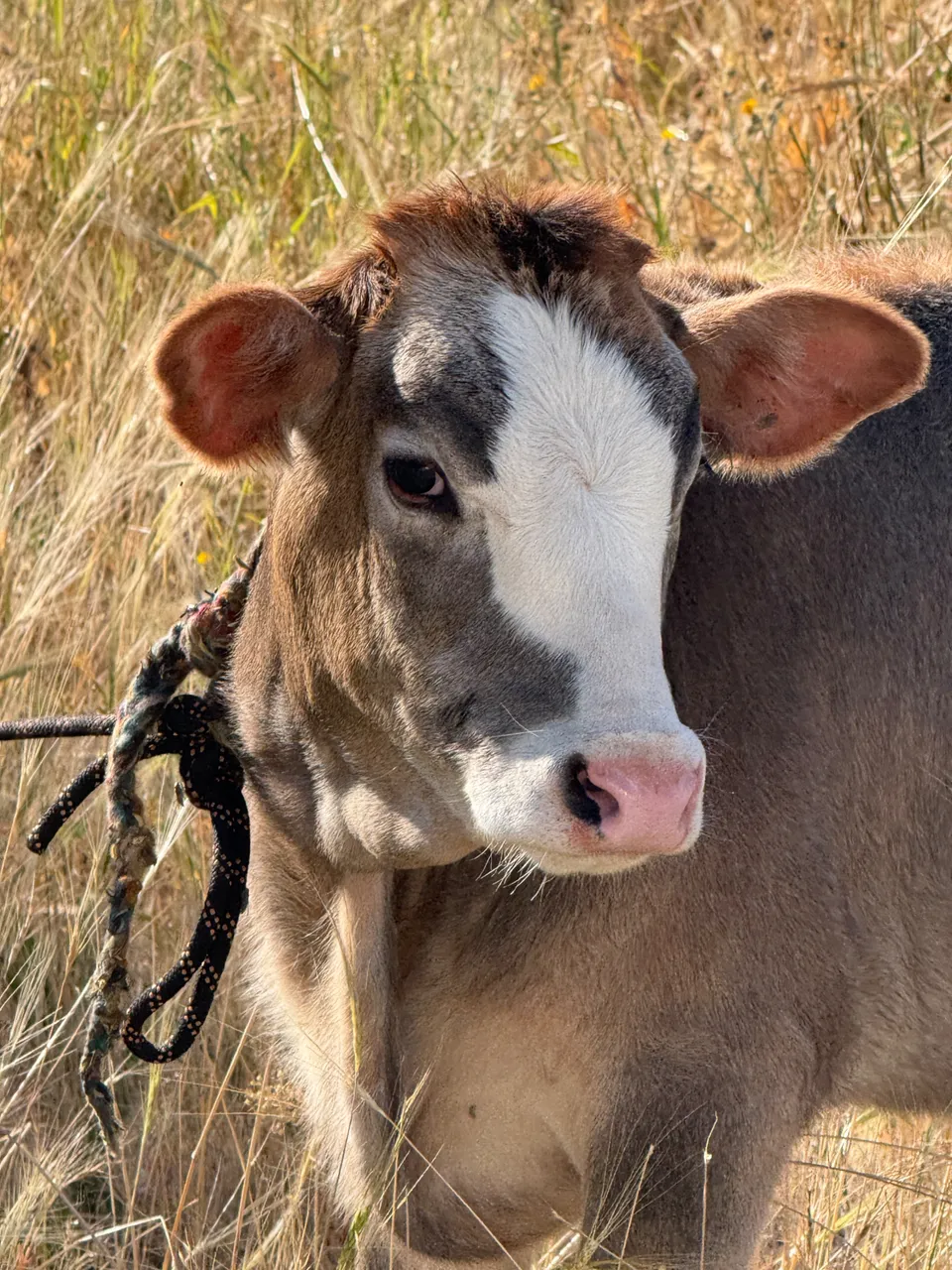
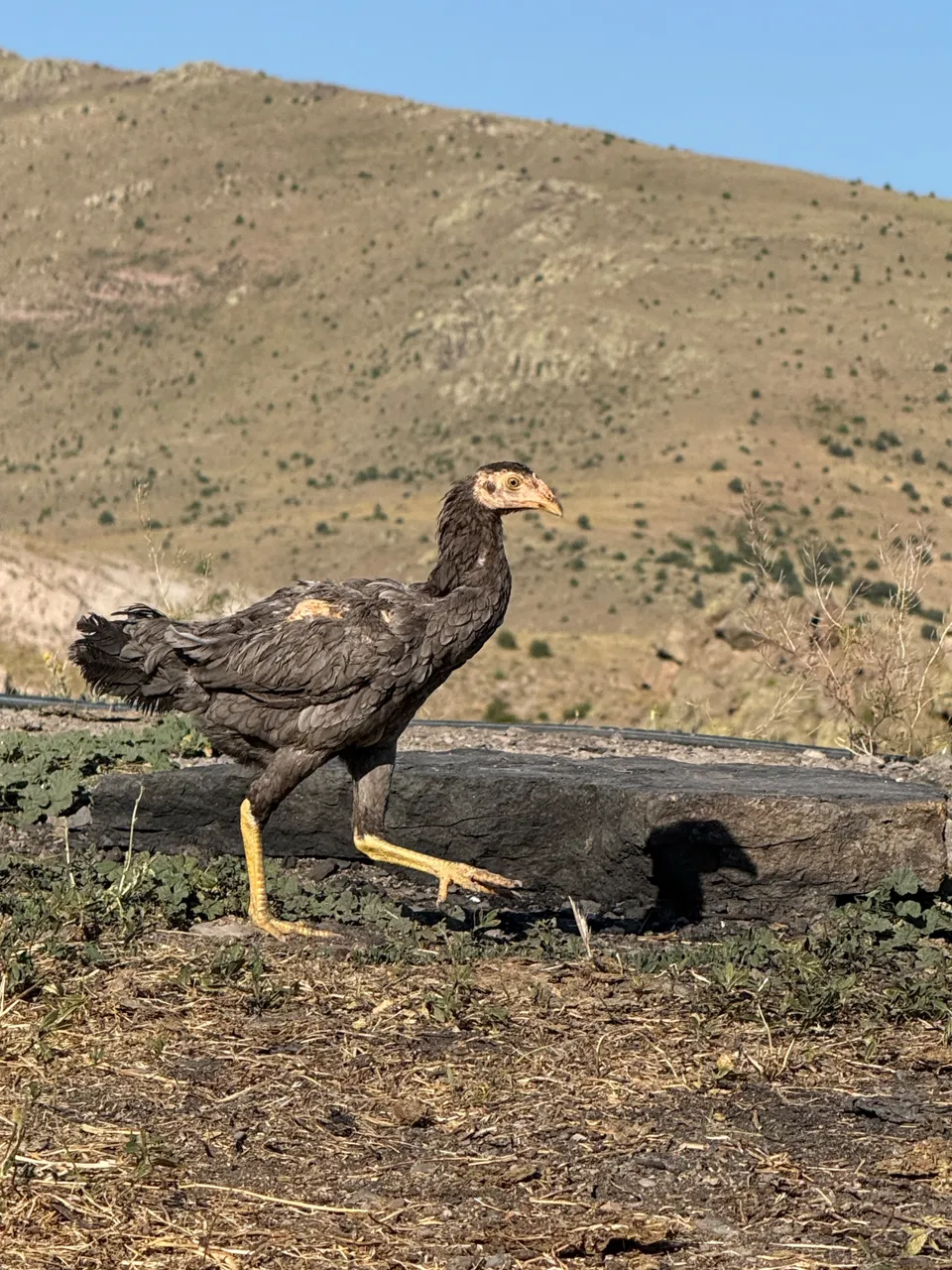
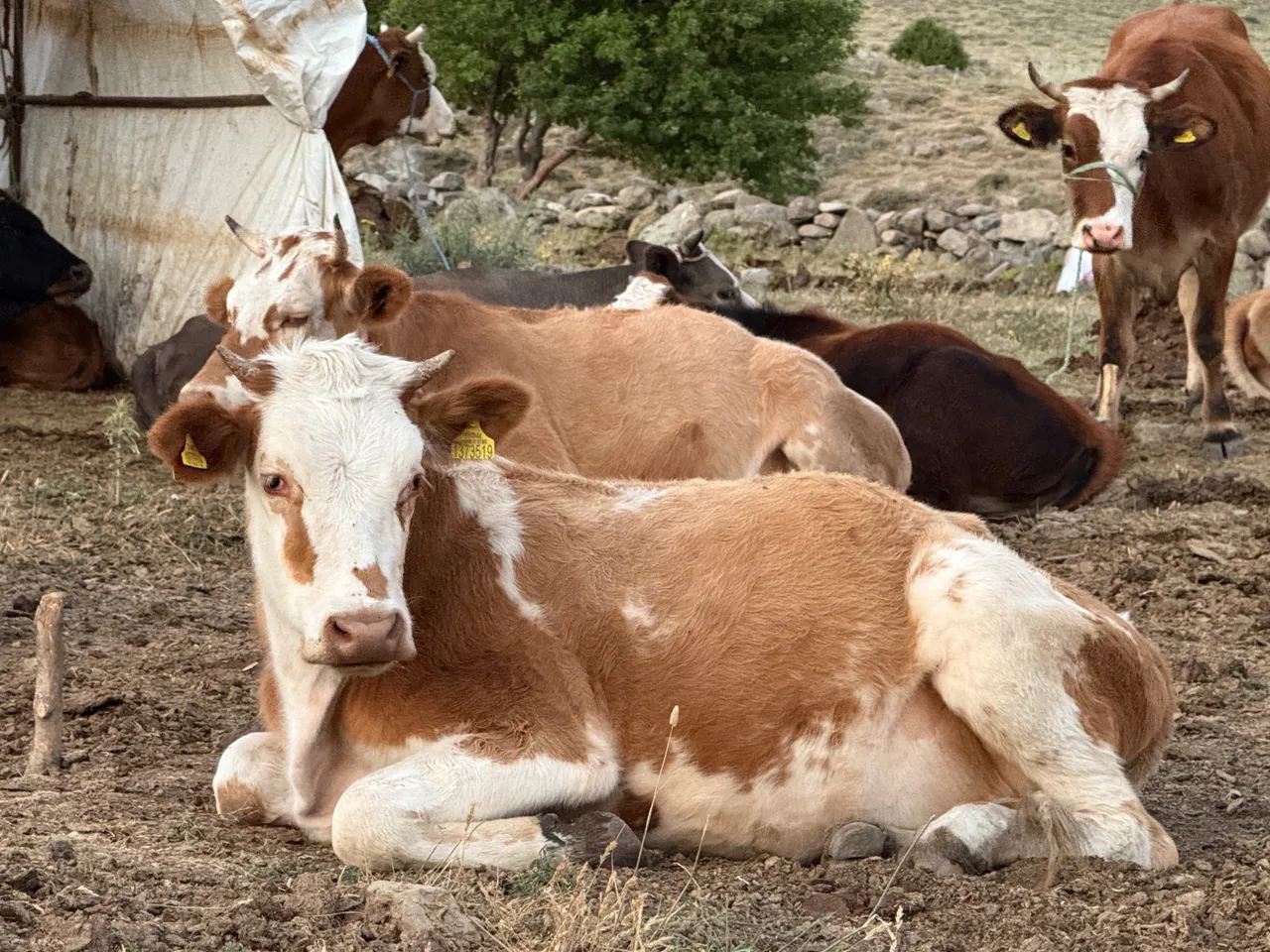
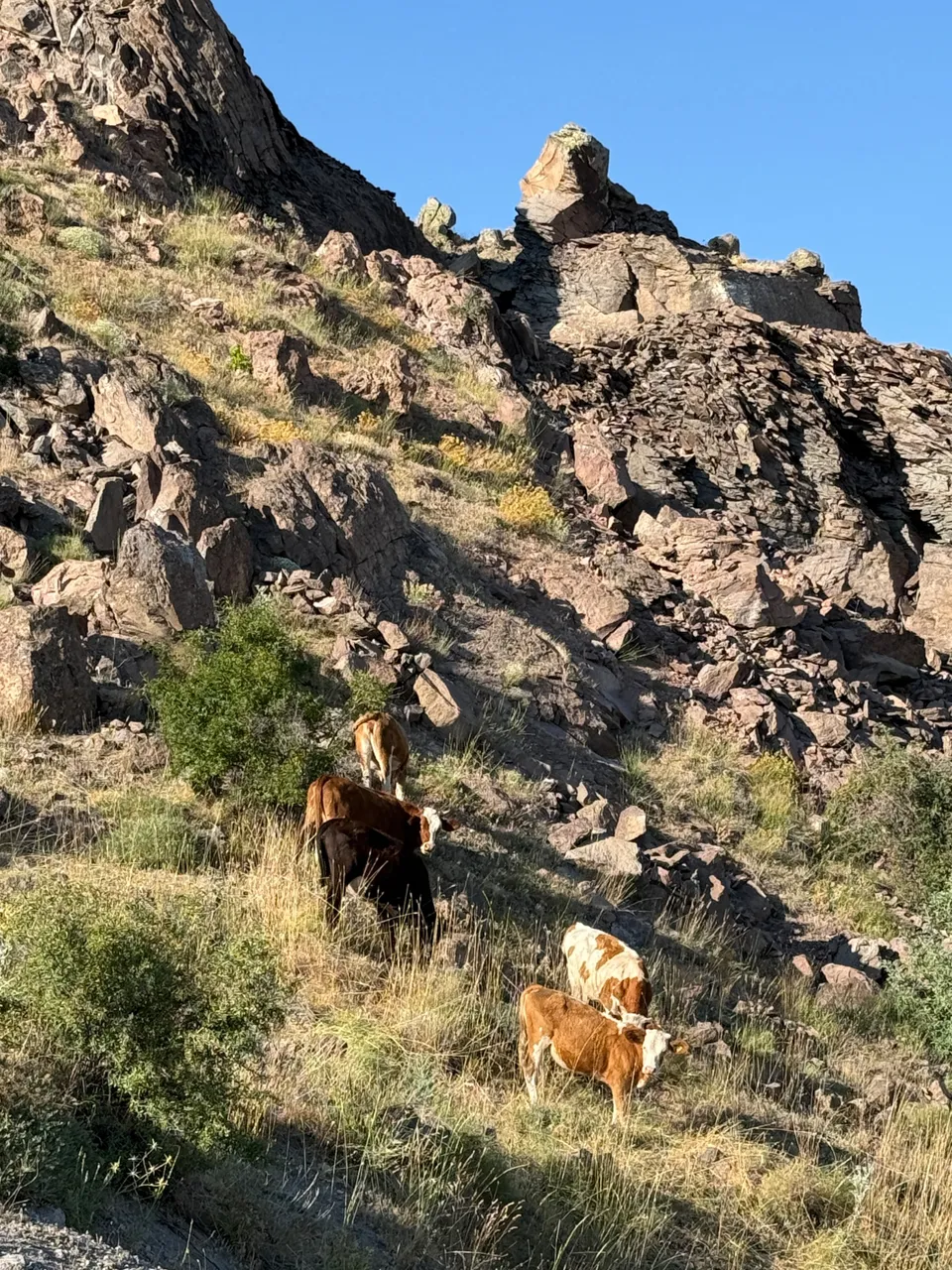
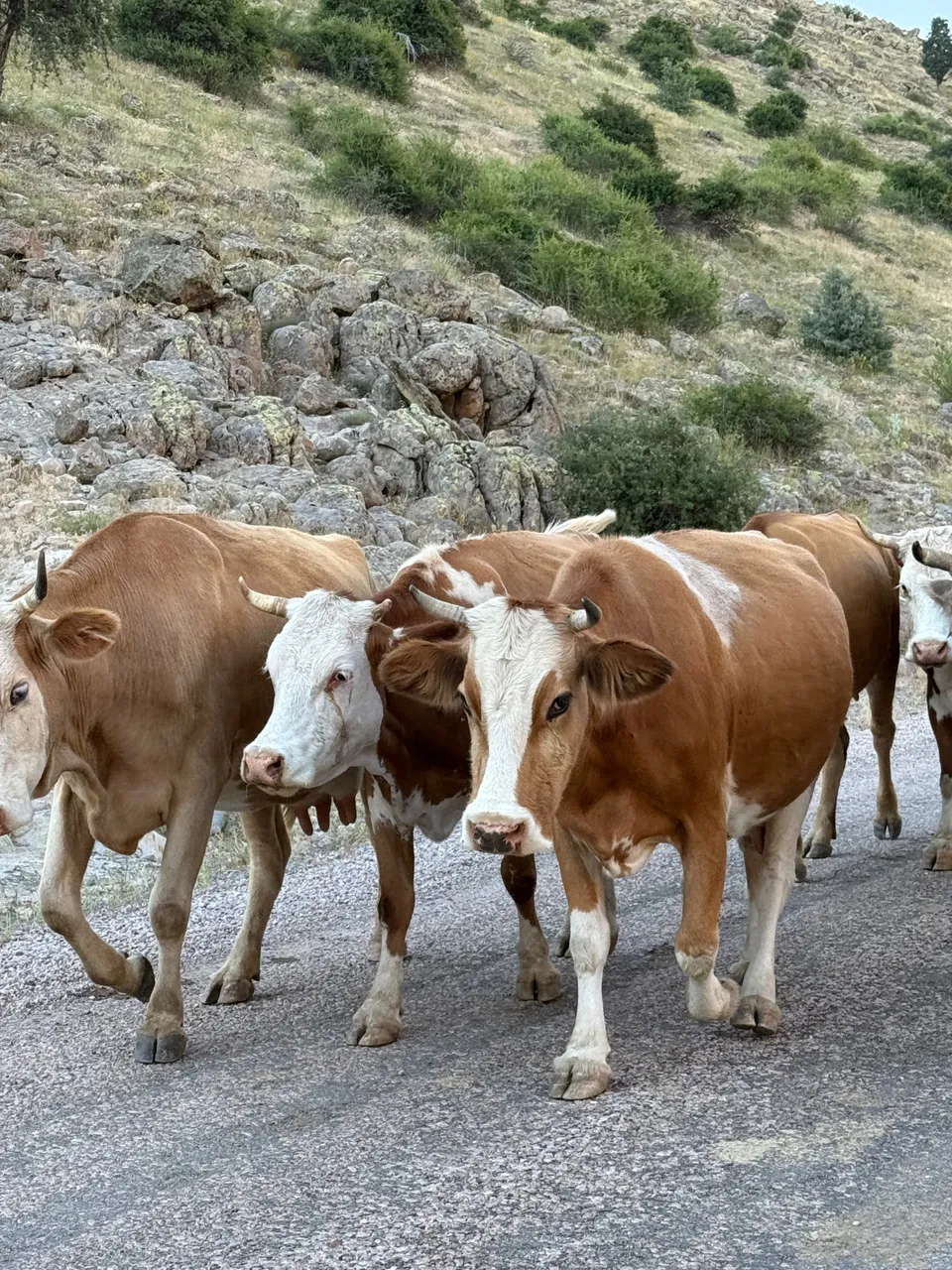
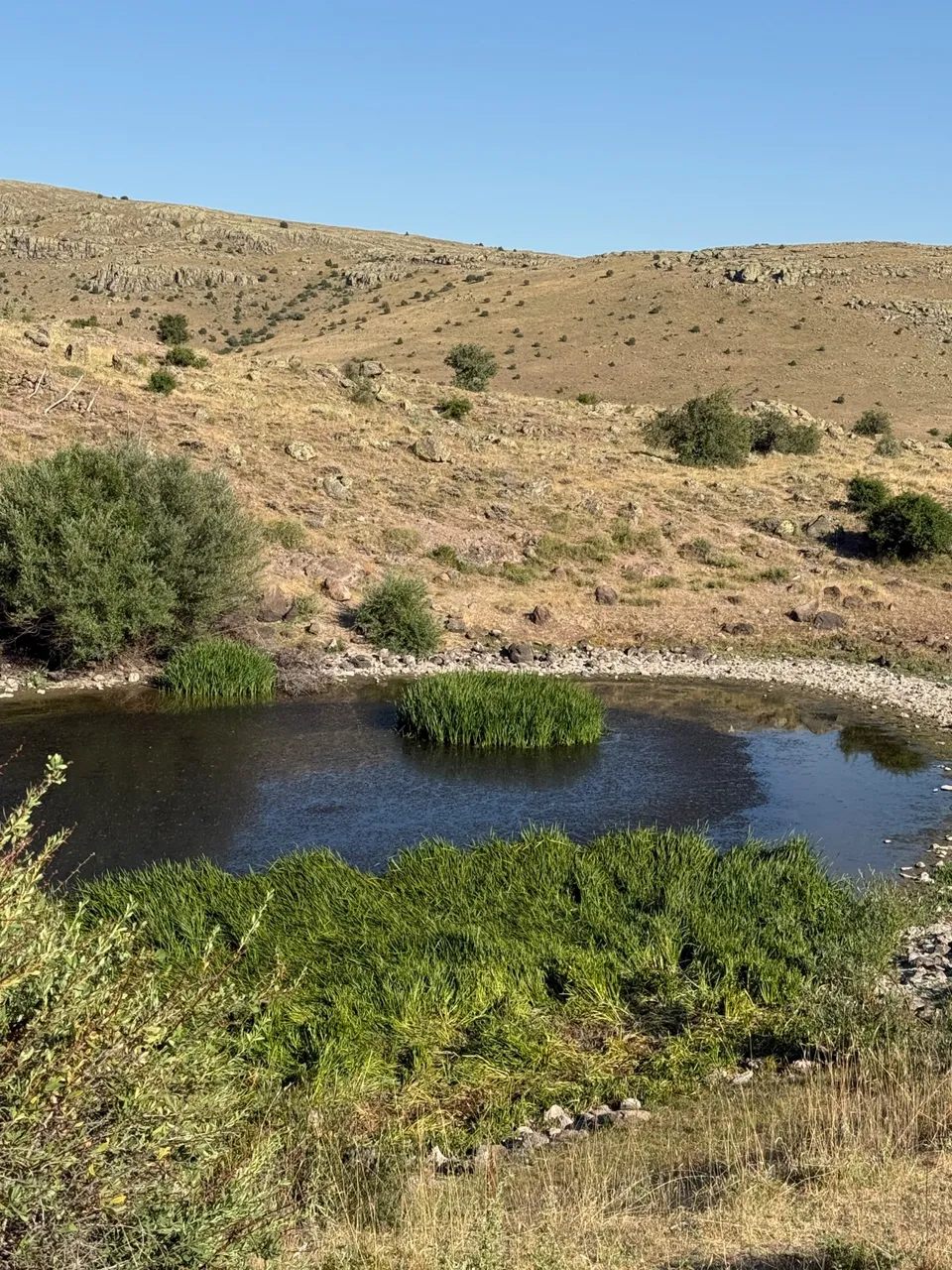
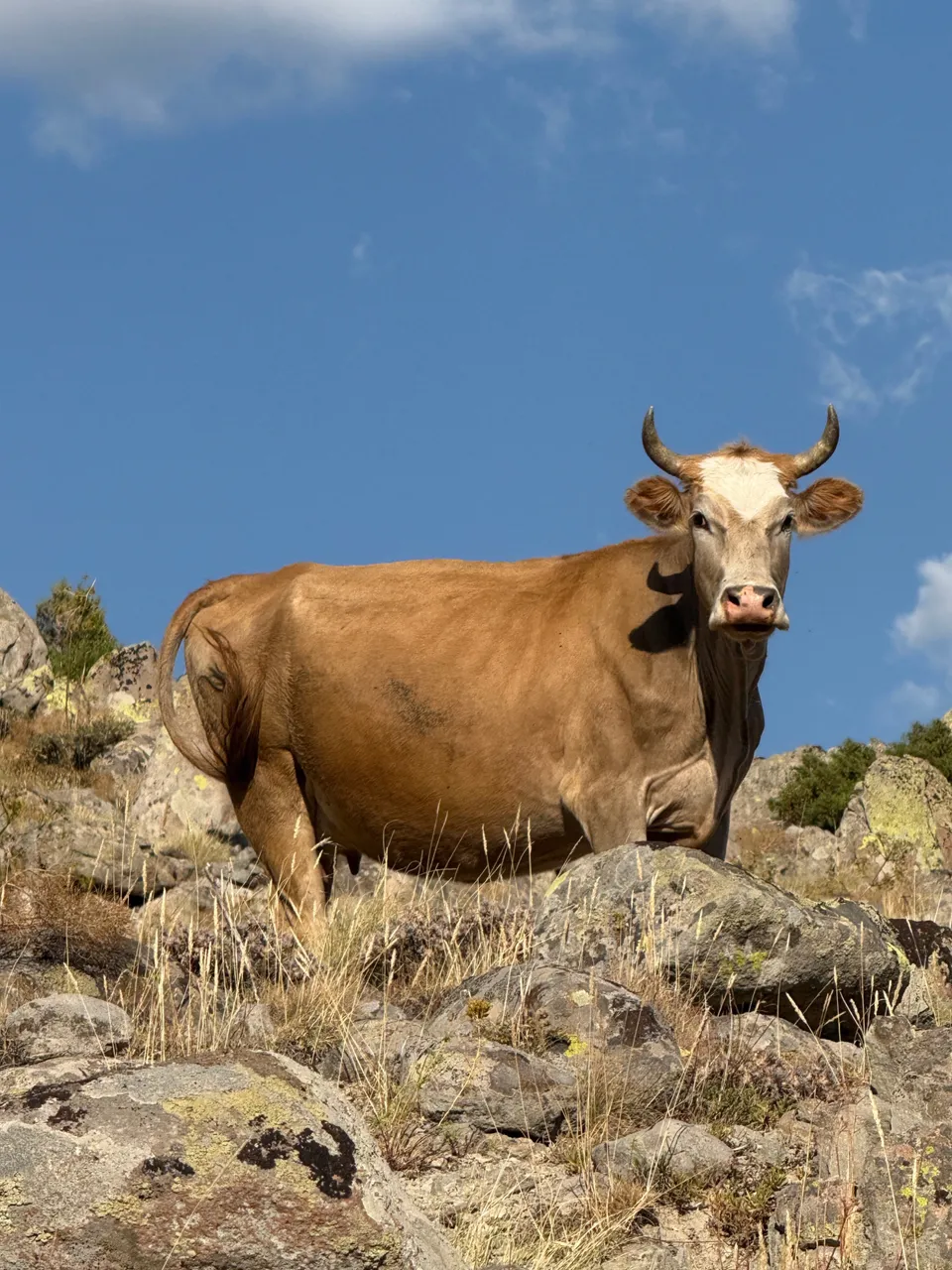
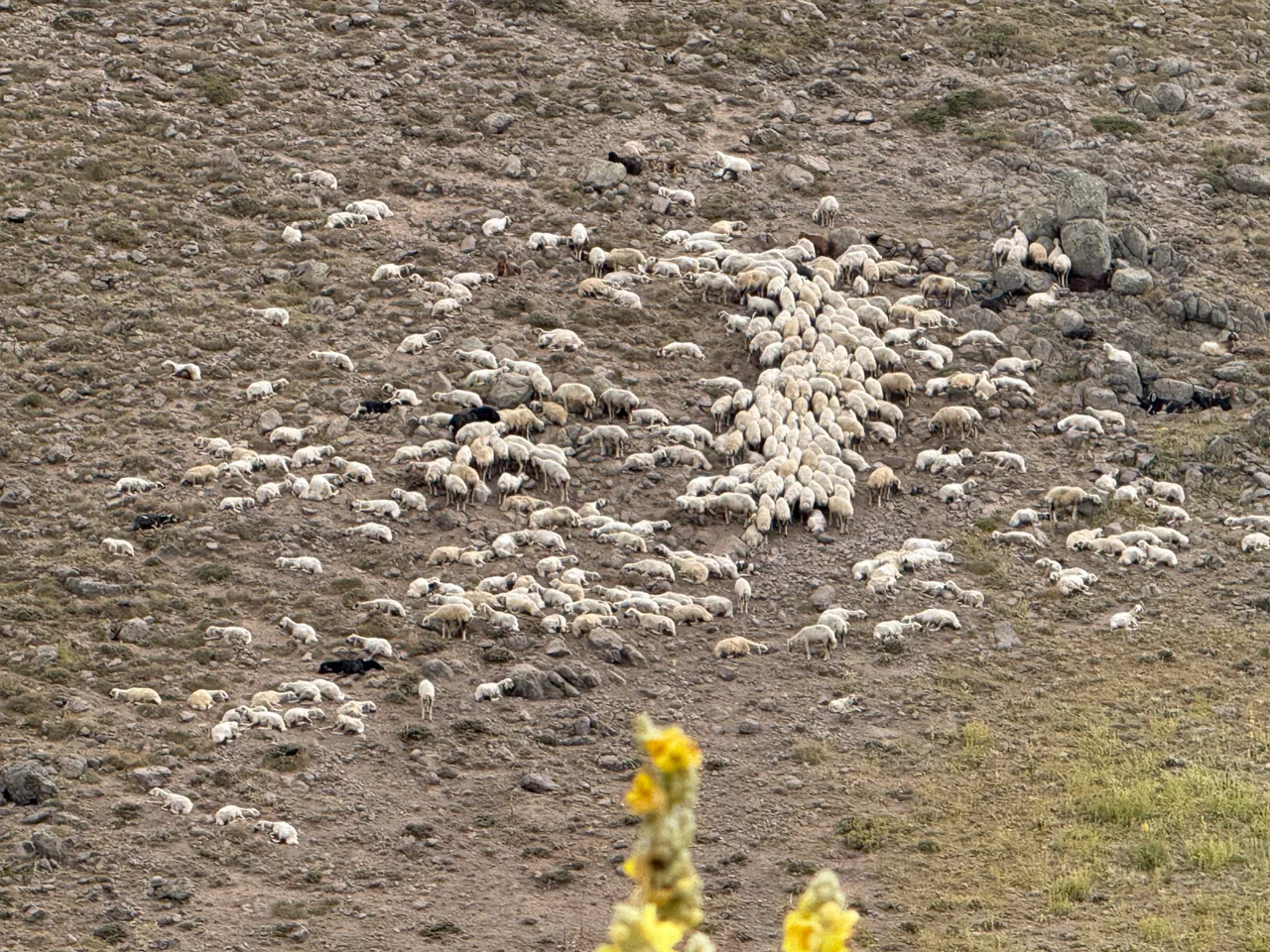
Can you believe that this bunch of small worms in the distance is actually a huge herd of lambs😱😍
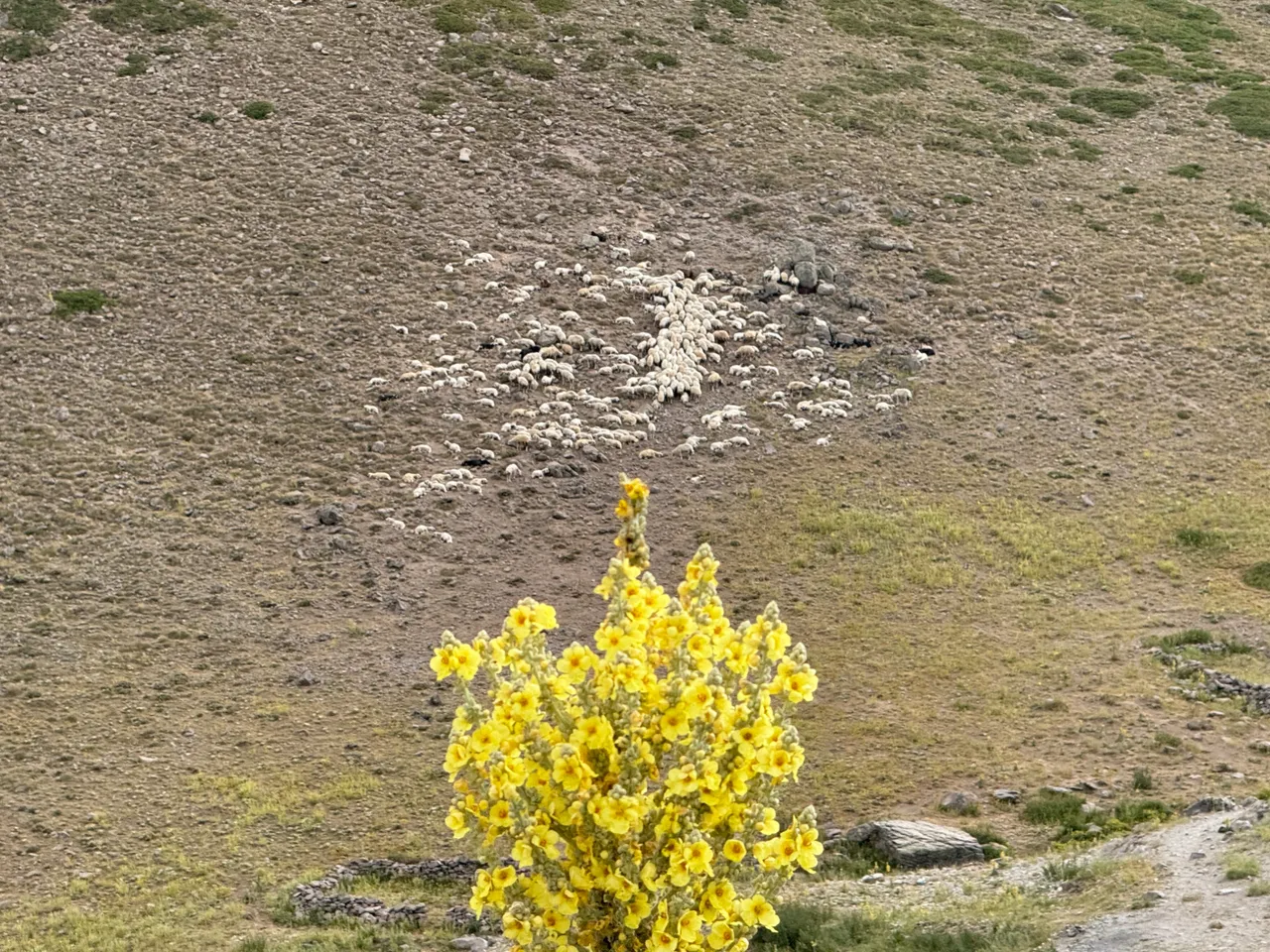
Between the boulders the ground is covered with small green bushes, moss and dry grass. It sounds very cute and carefree, but in fact all these breeds are super prickly, it's like a trap. Once when I tried to run after a flock of sheep and there was a field completely covered with small bushes with flowers and I thought they were soft, but in fact they were prickly monsters, from which 7 needles got into my leg and then we had to pull them out.
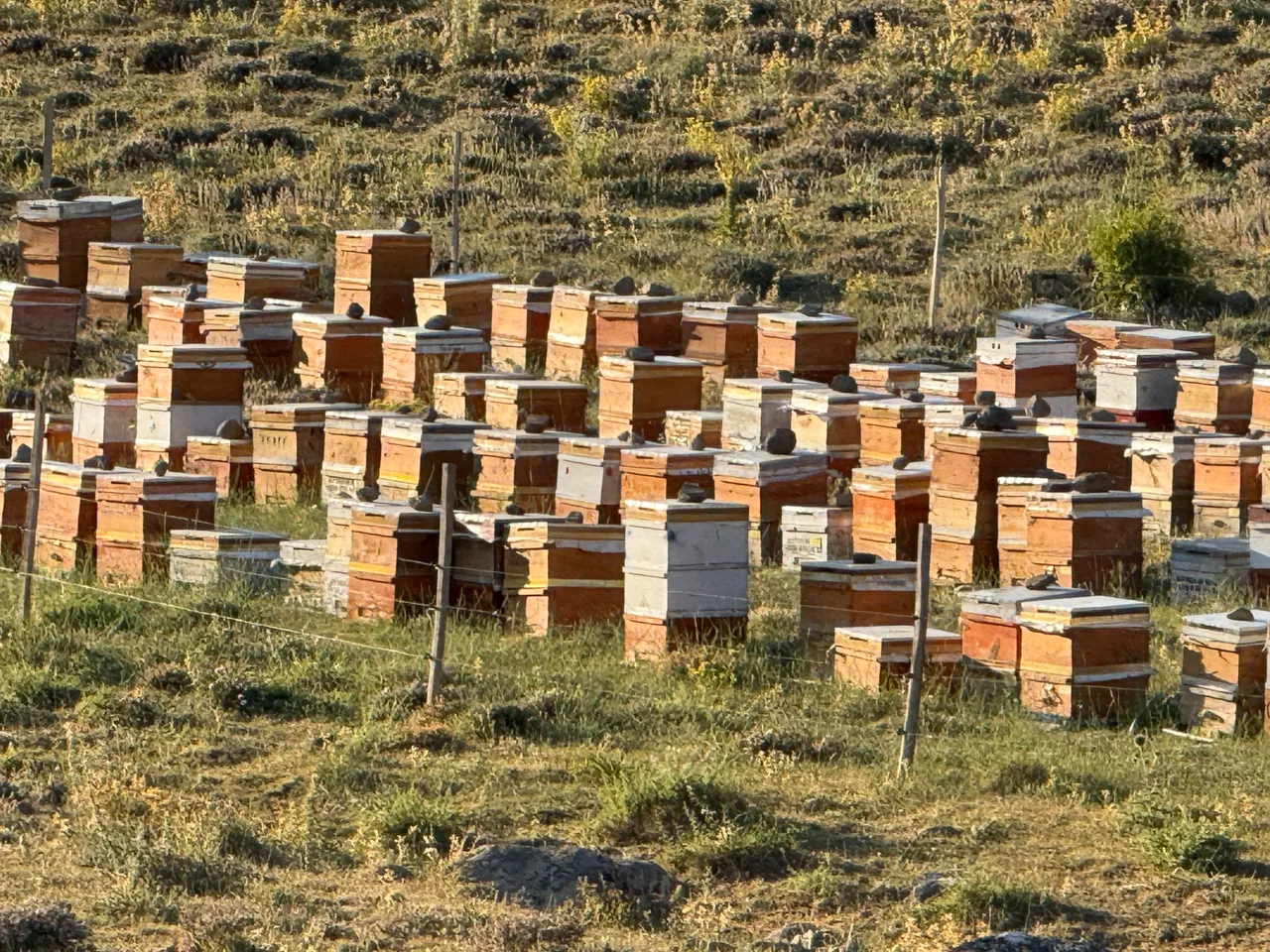
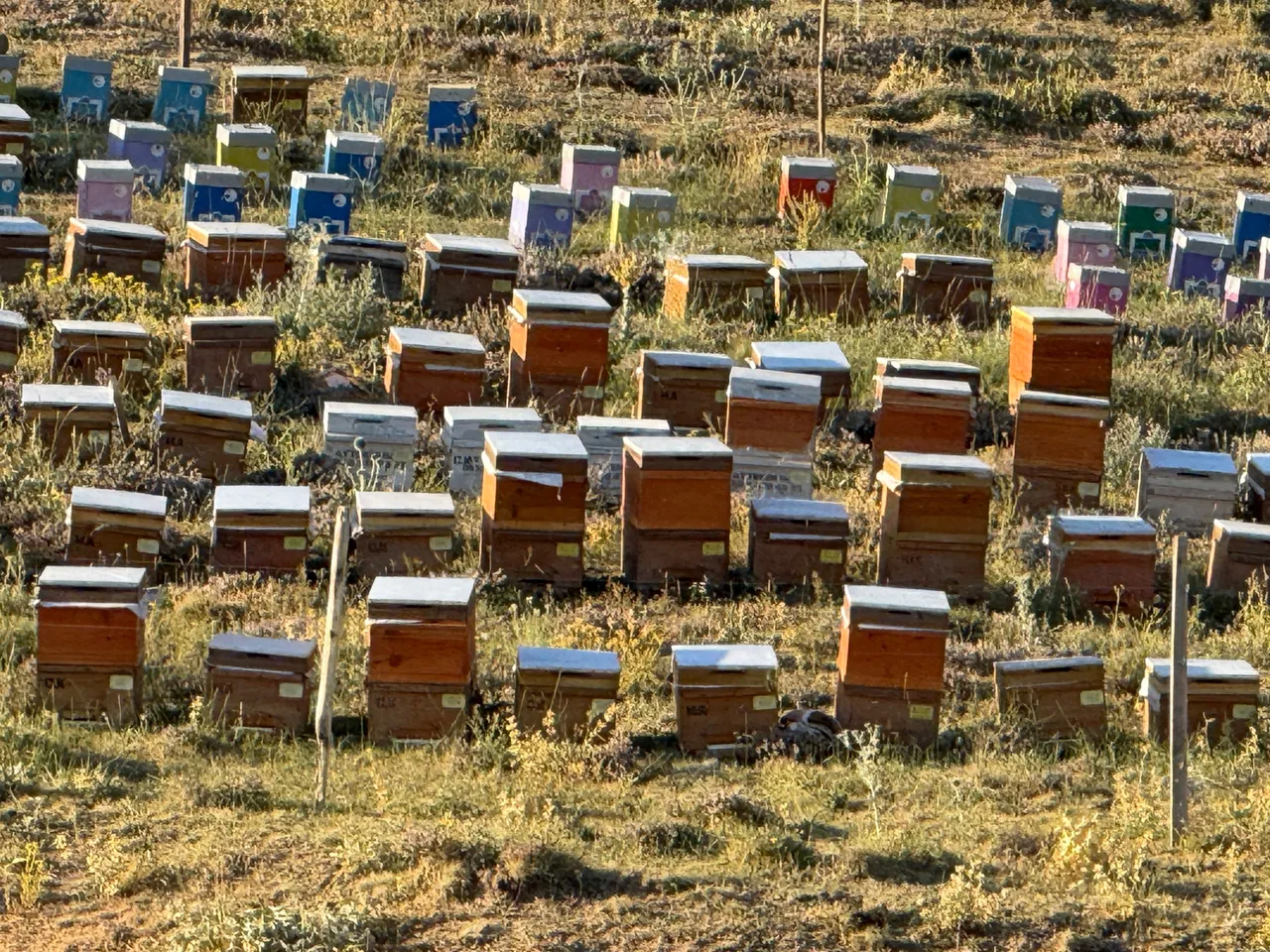
And another phenomenon we encountered on our way was the largest number of beehives I have ever seen in my life. I was told that I couldn’t get too close because if the entire swarm of bees flew at me, it would be a disaster. Although I didn’t believe I could wake them up so easily, I wasn’t allowed to approach even within 20 meters, so I only took photos from afar.
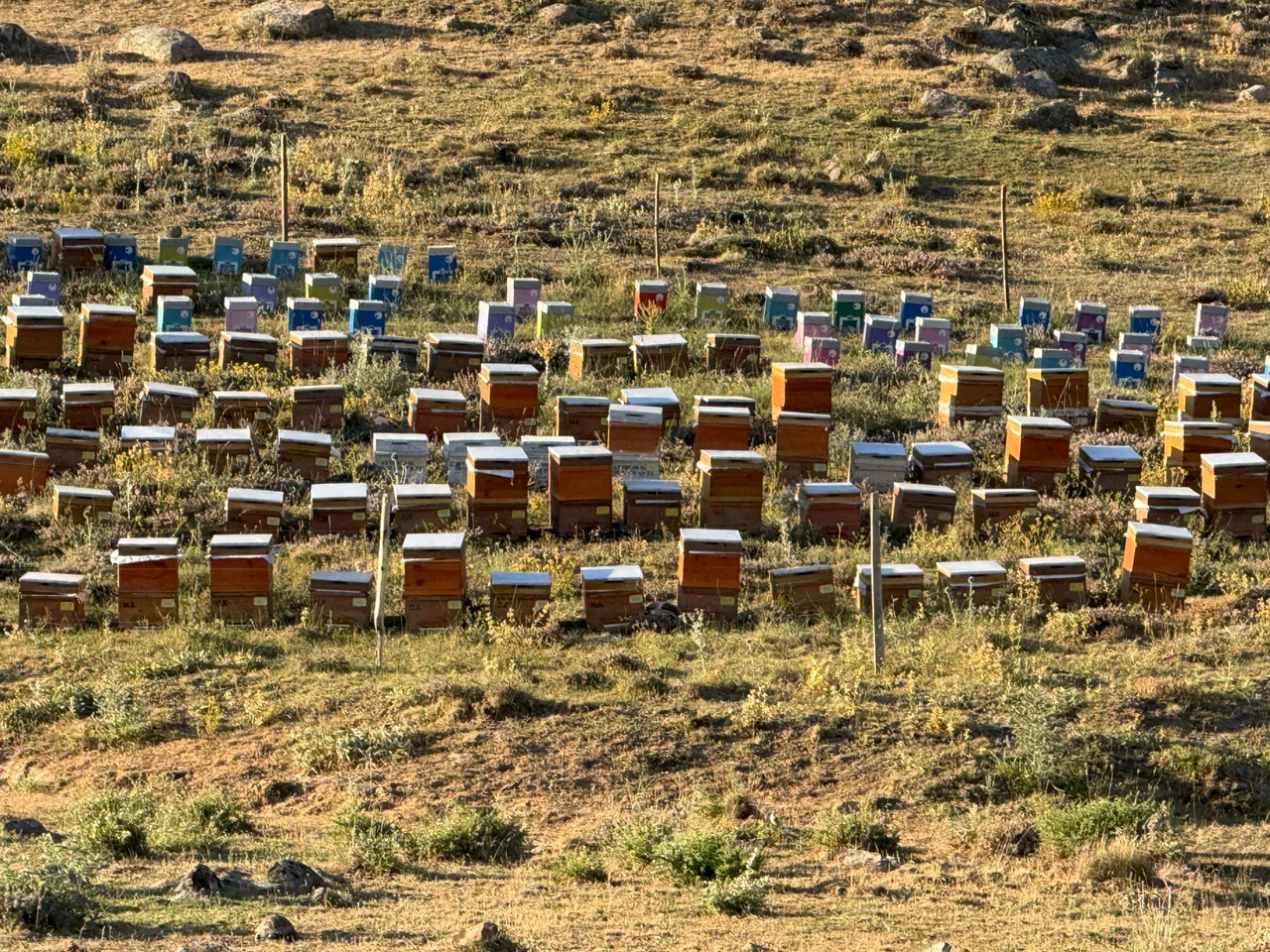
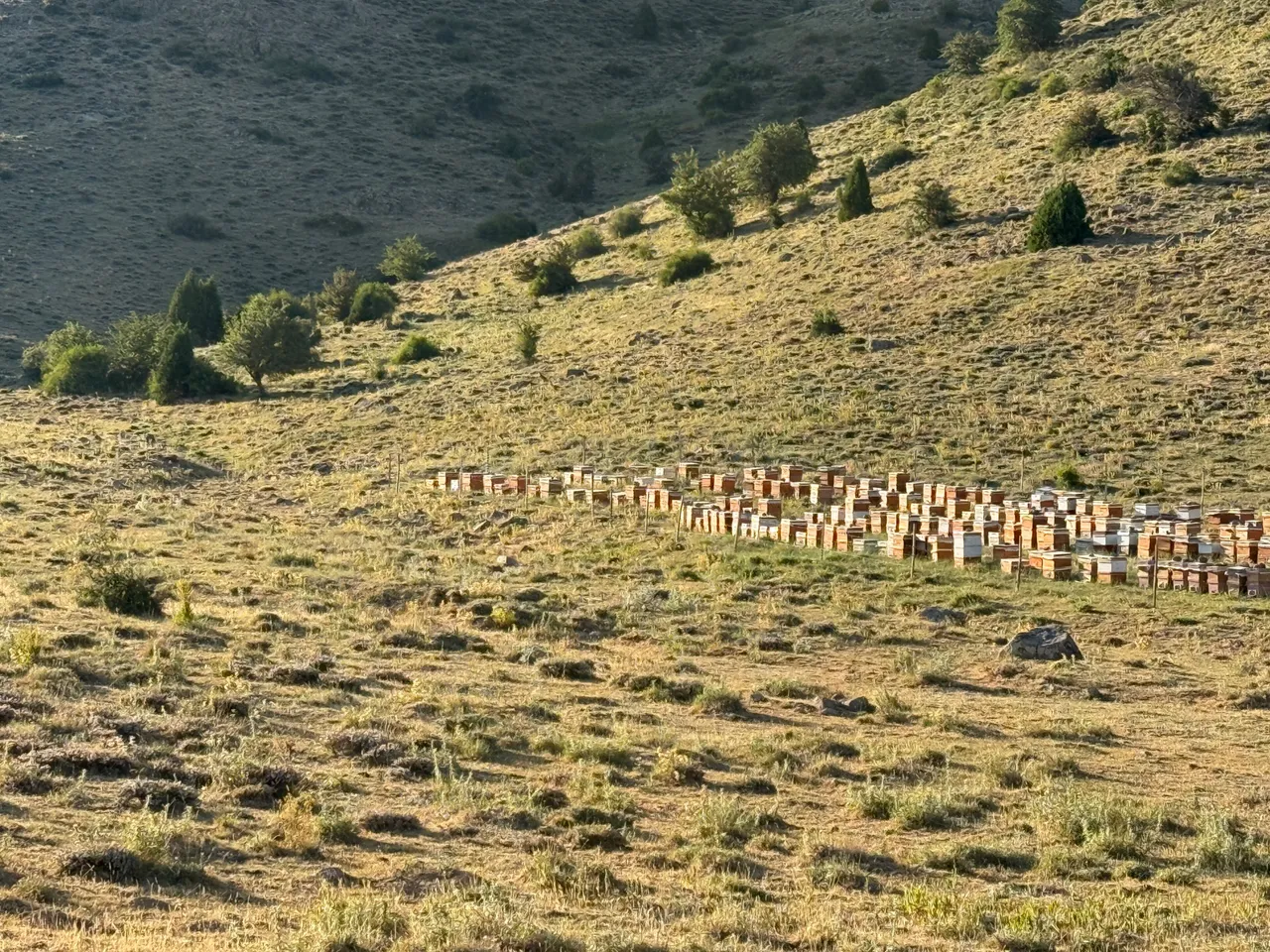
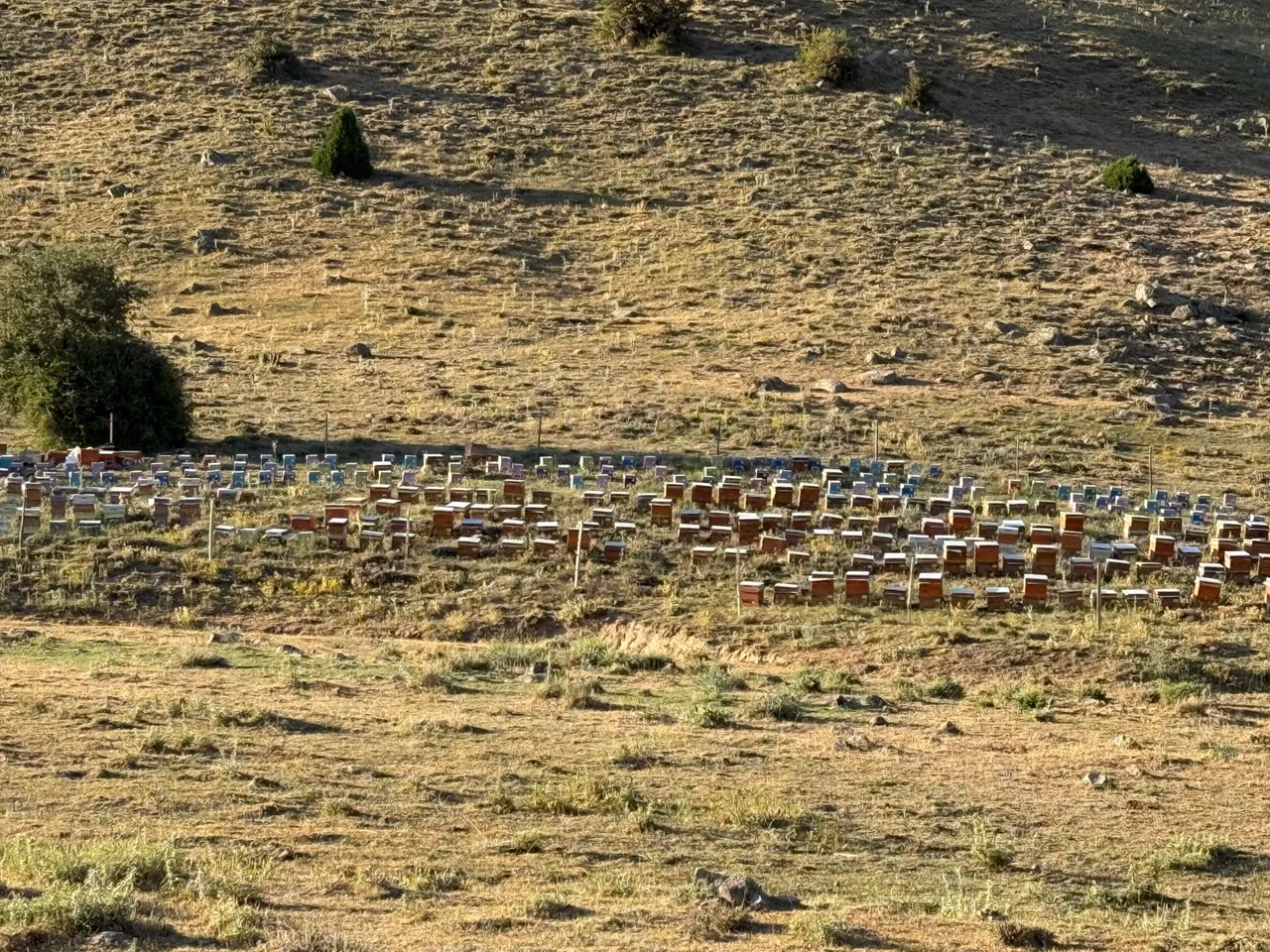
According to the history of these regions, about 15-13 million years ago Yamadag was an active lime-alkaline volcano associated with the collision of tectonic plates in eastern Anatolia. Eruptions of andesitic and dacite lavas created several layers: Minerals, cinders, collages of sharp pieces, white crystal, dark mineral, gives the rock its hardness.
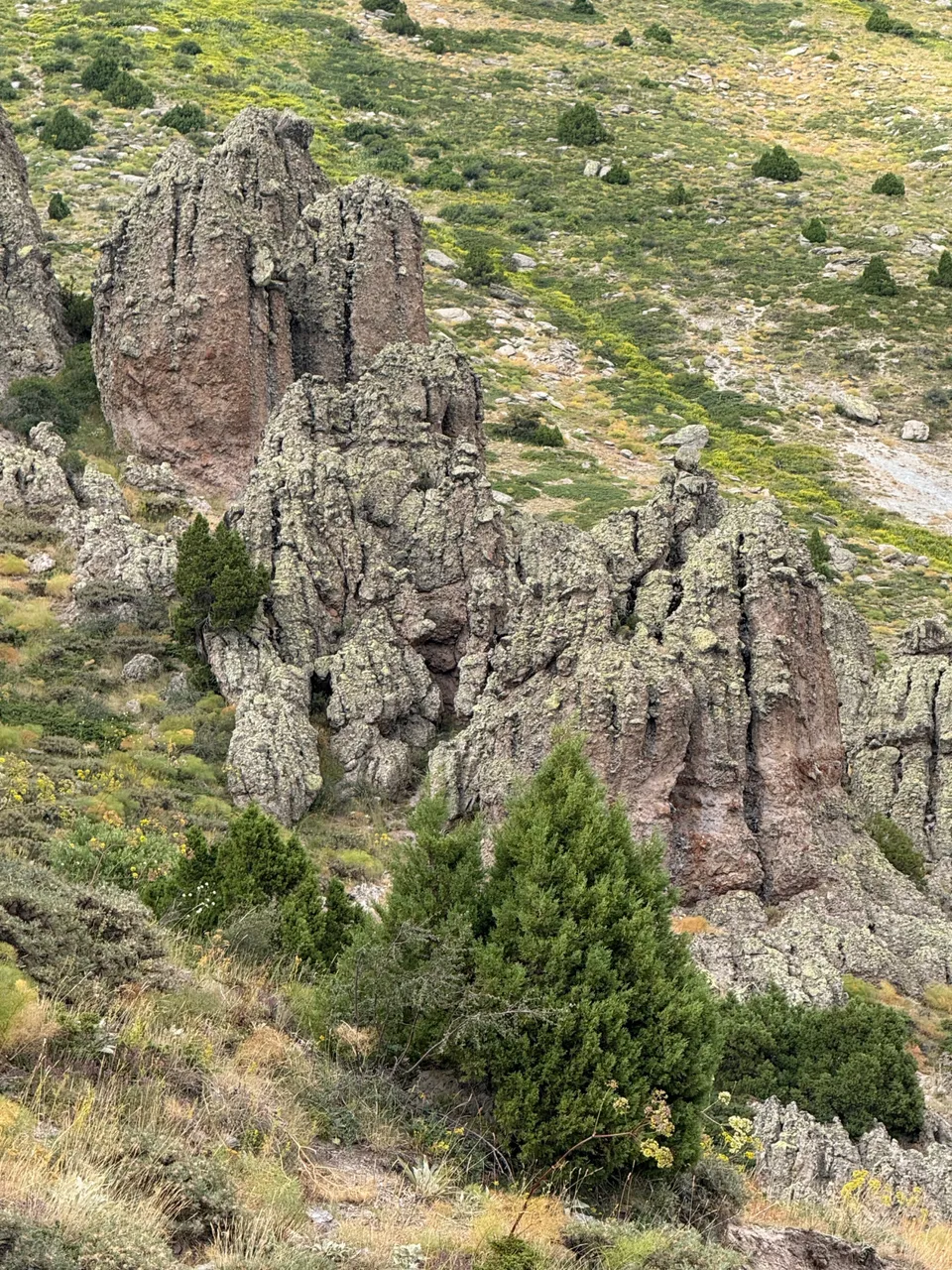
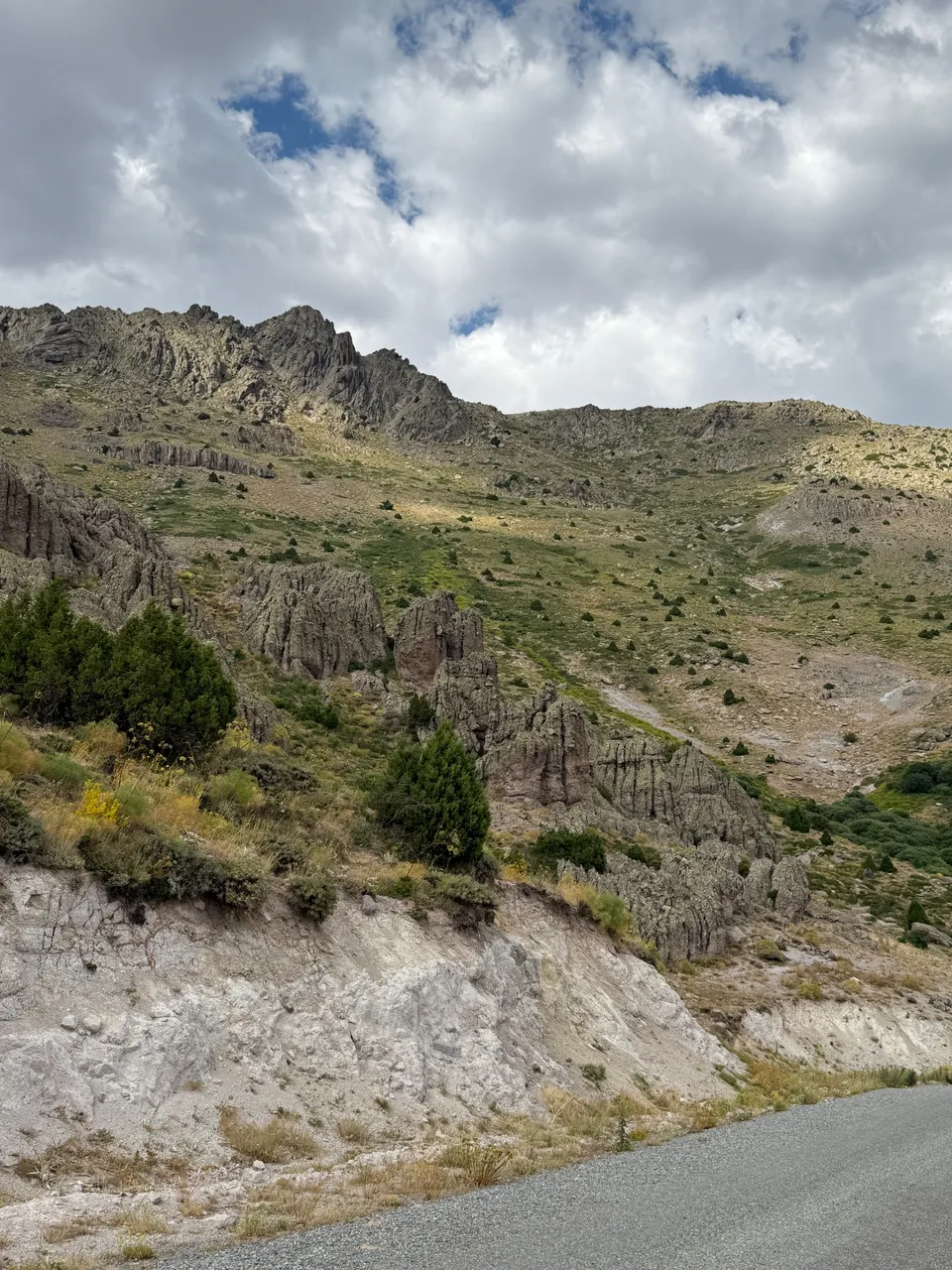
These potassium-rich rocks underwent transformations during ascent or contact with the Earth's crust, mixing of magma, gradual crystallization, assimilation of fragments of local crust. When all this activity subsided, these ancient volcanic layers slowly cooled. Over time, rain, wind, and temperature fluctuations eroded the weakest layers.
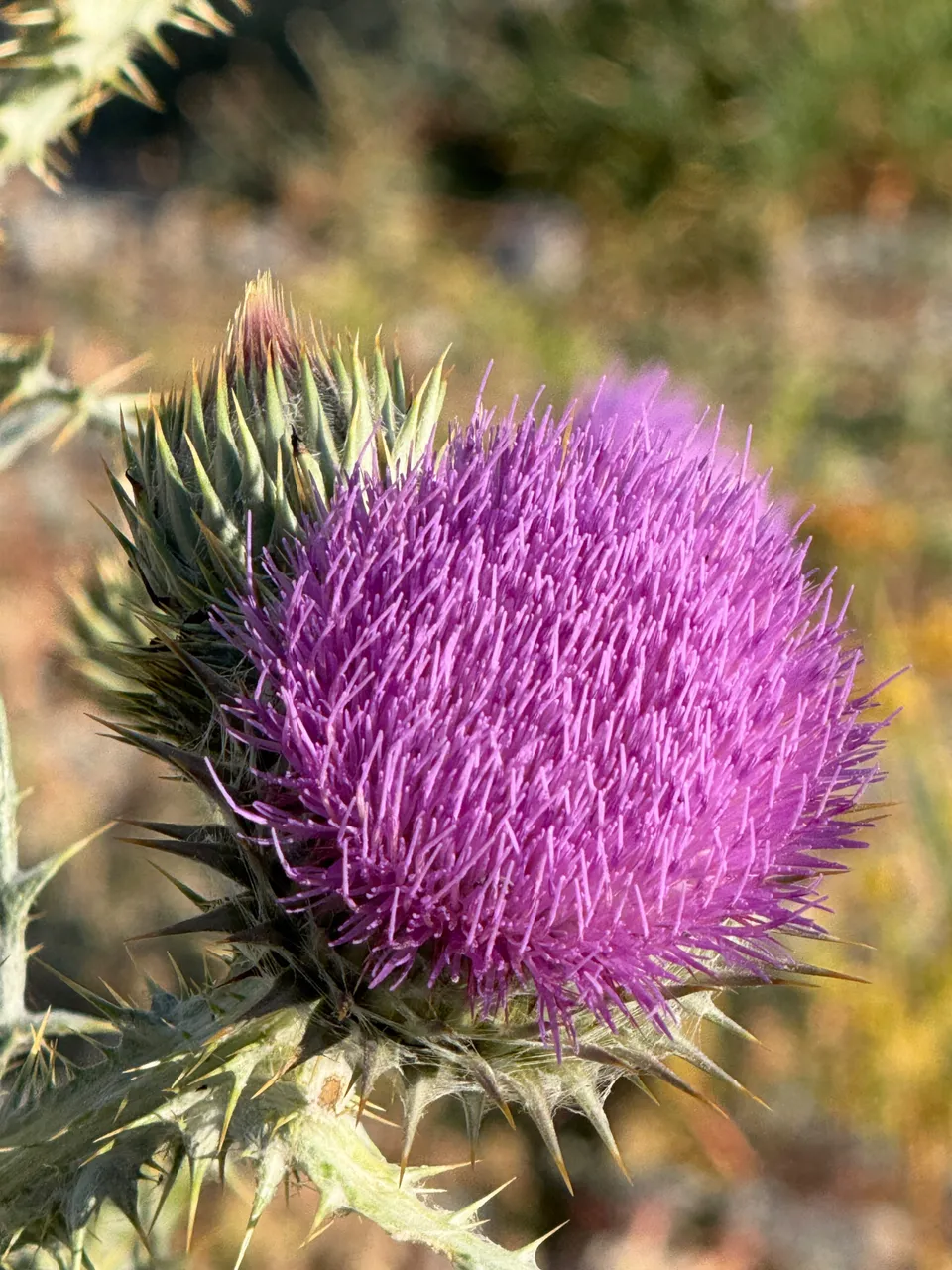
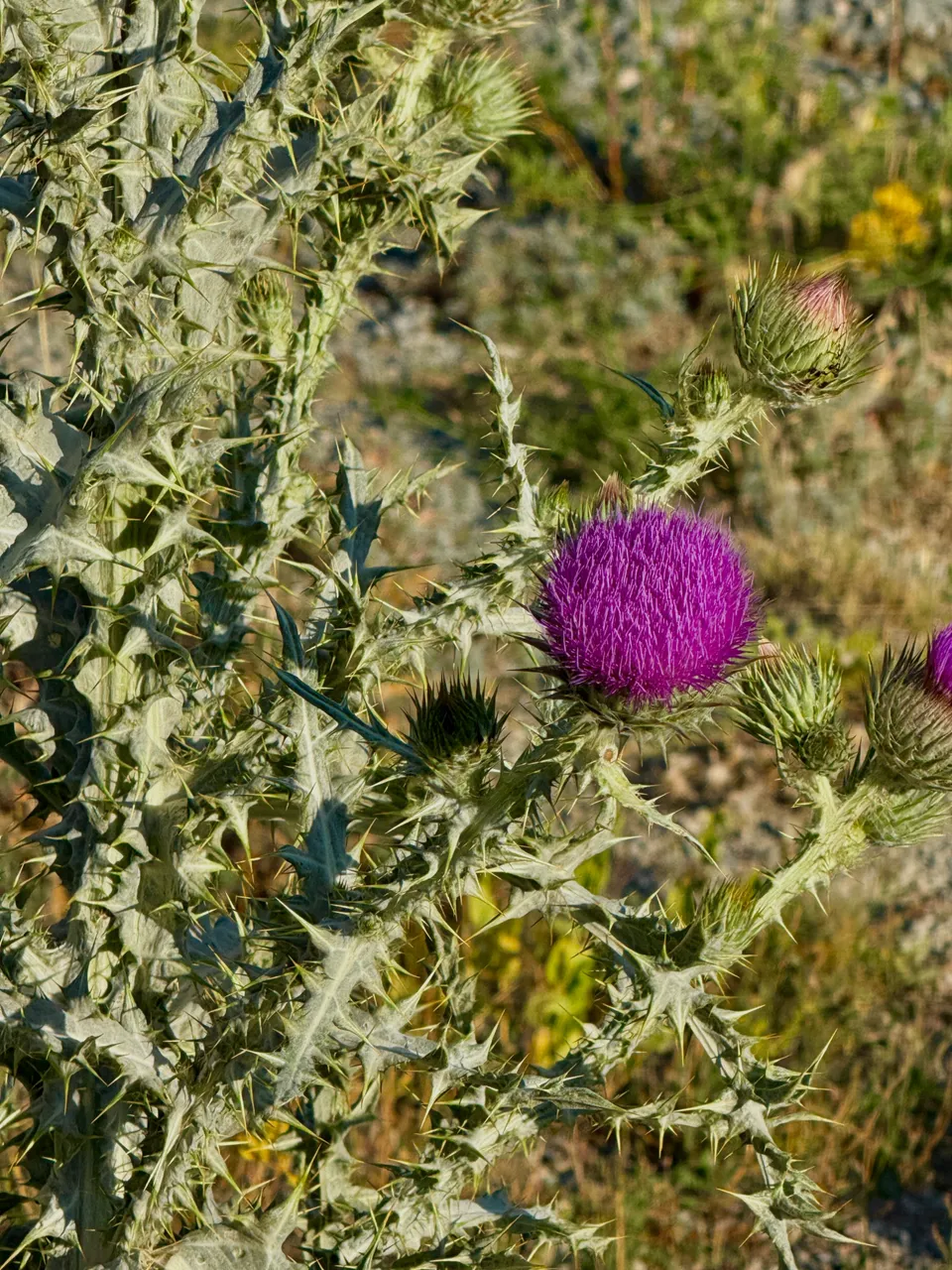

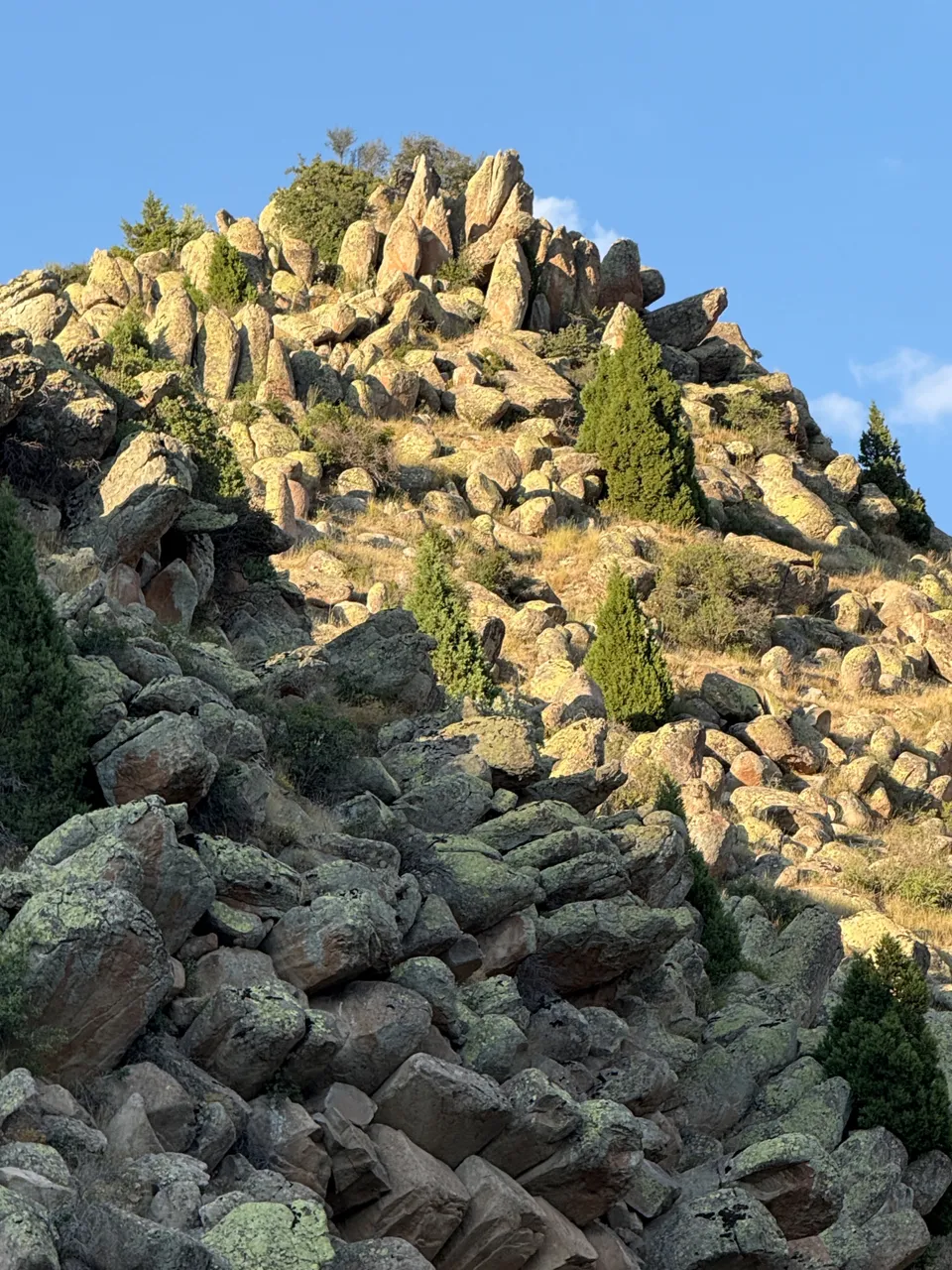
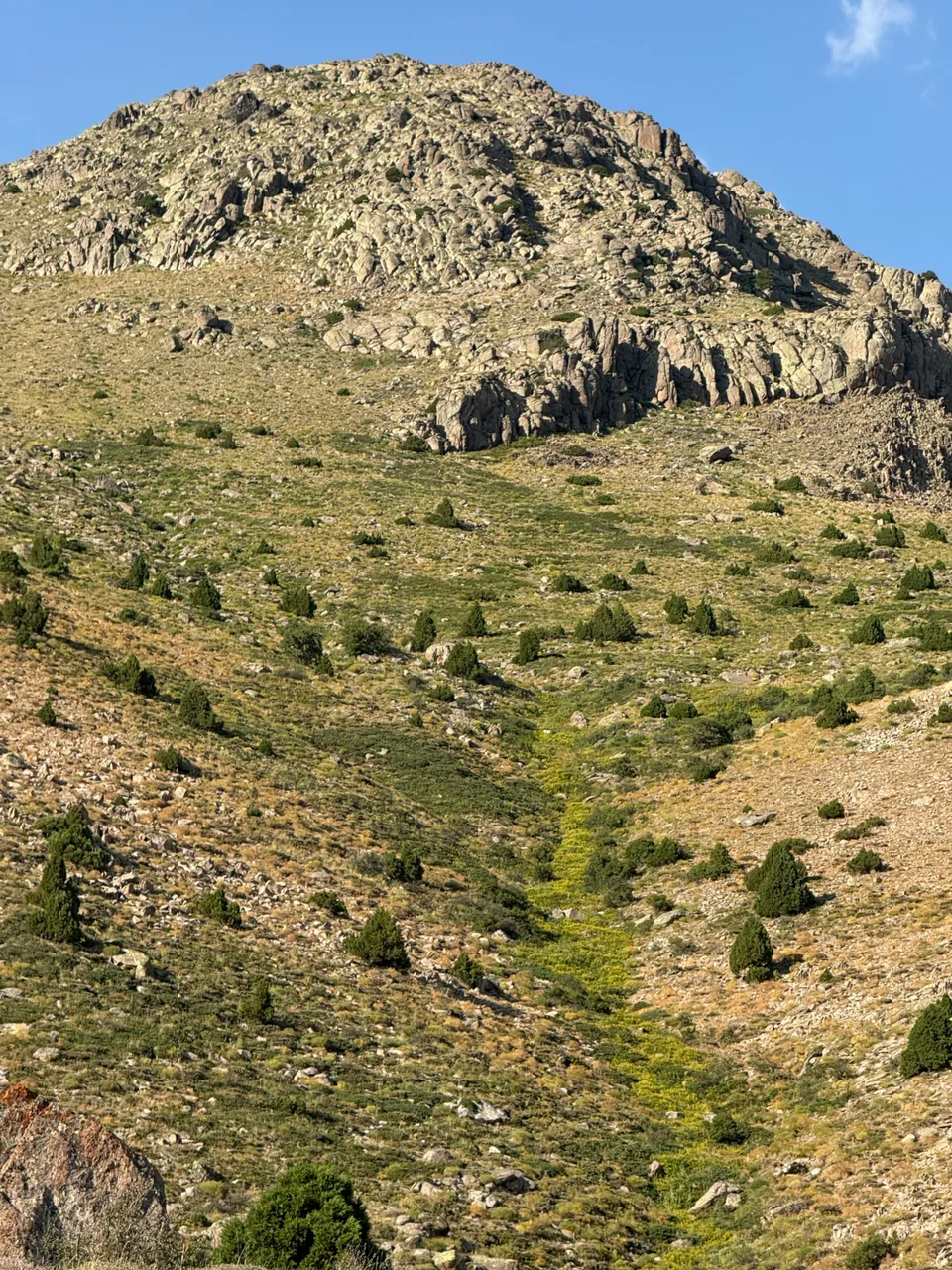
Only the strongest blocks of andesite(gray-green or brown-gray rock) and dacite(relative of andesite, but lighter in color, usually gray or pale pink) remained intact, forming the spherical or angular mountain ranges visible today. On the ground we see natural moraines of large light gray pebbles, sometimes covered with a veil of soft green moss or small shrubs, hence the contrast between the stone and the vegetation. The ground between the stones is dry and sometimes yellowish: it is a summer lawn dried in the sun, which explains these golden highlights, but without the bright orange.
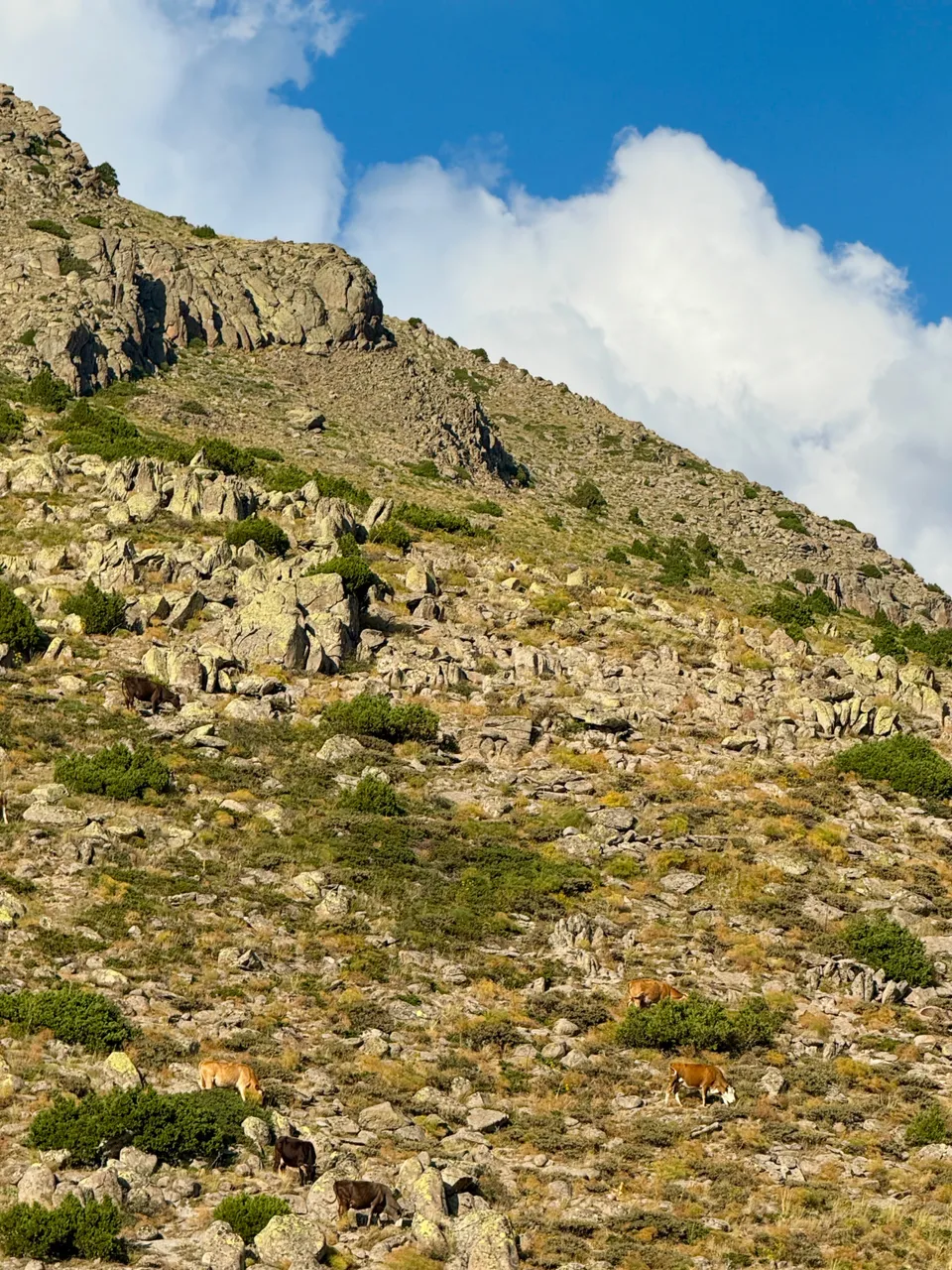
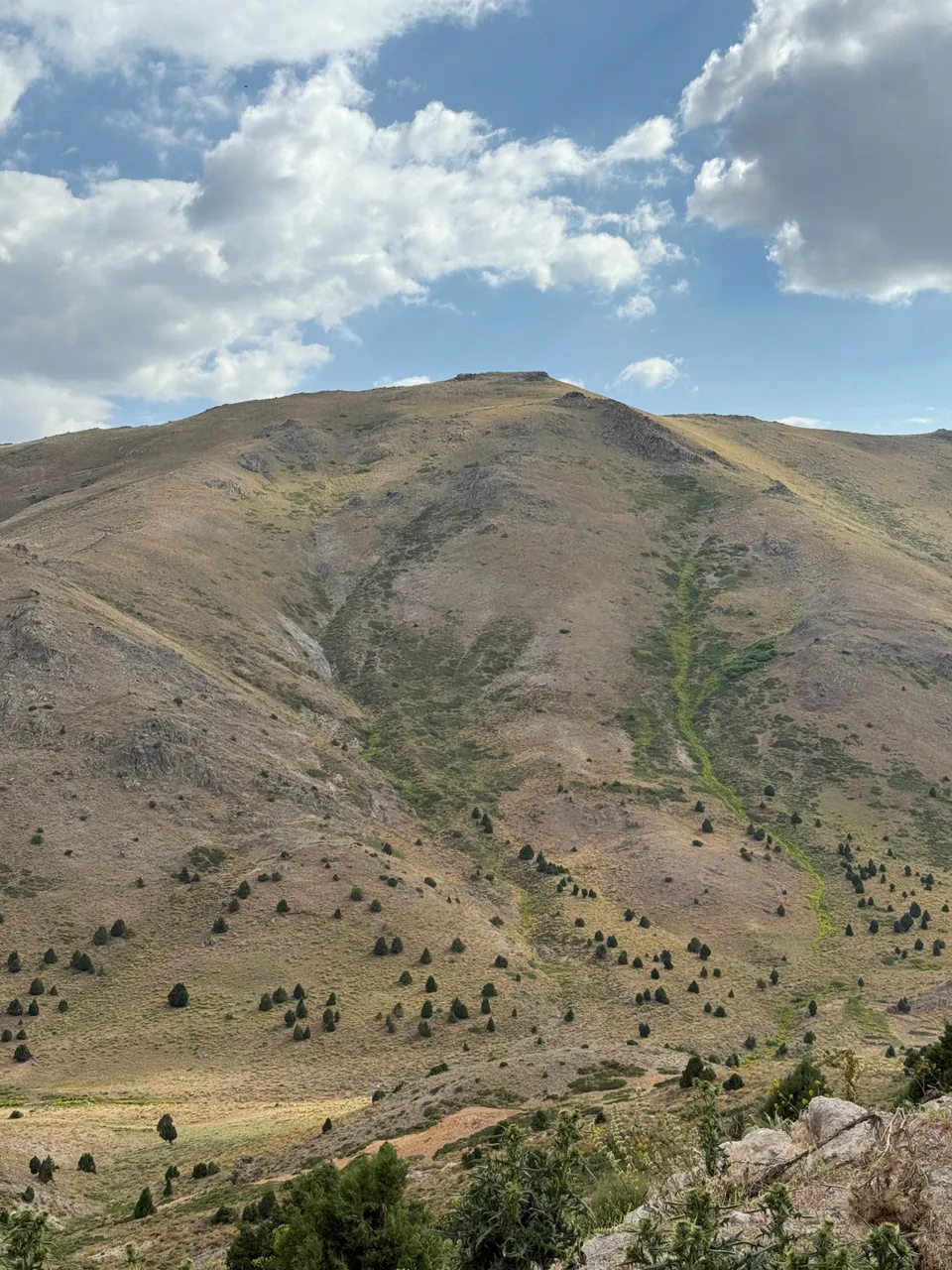
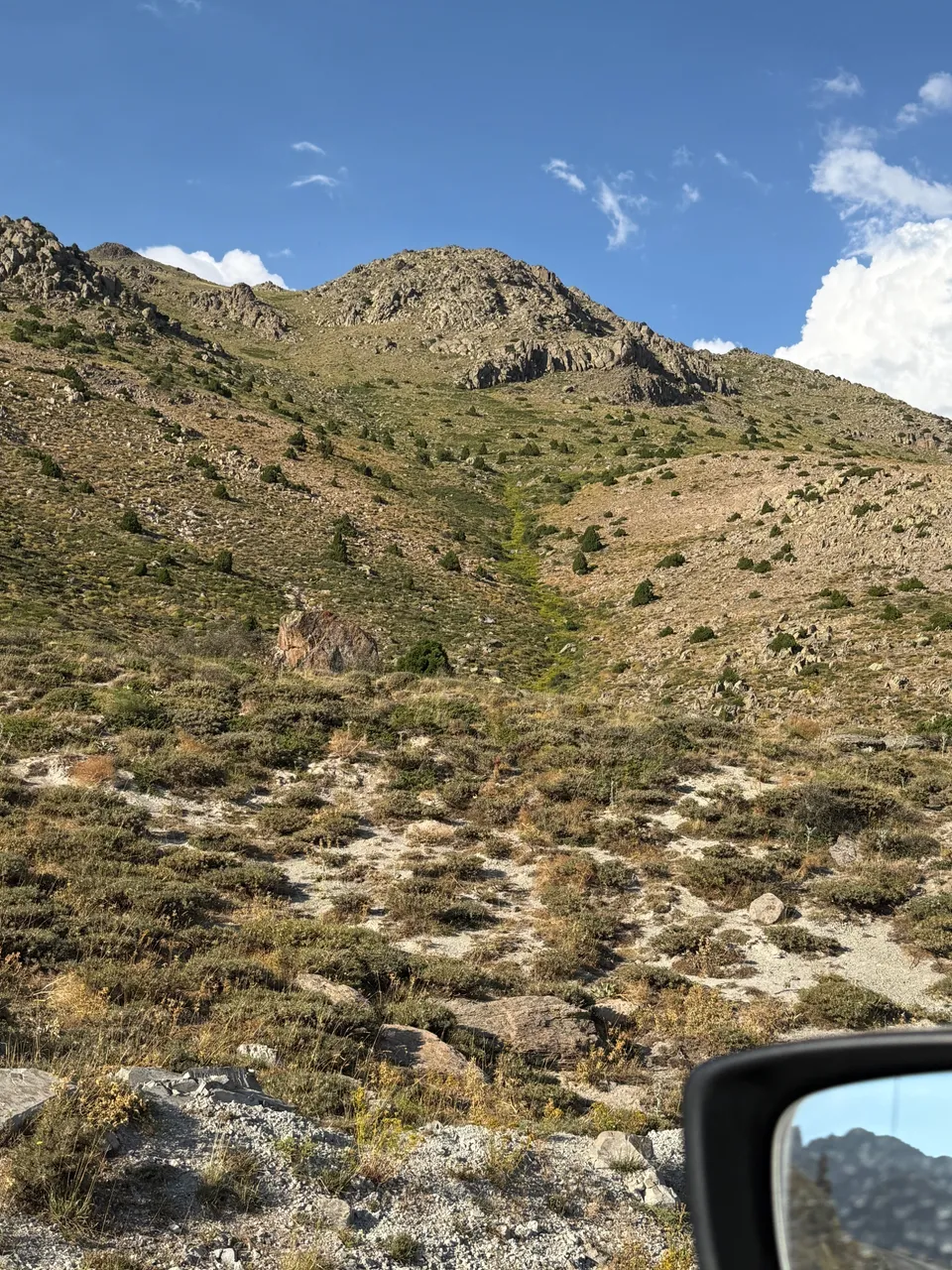
Yamadaga is one of the oldest volcanic complexes in the Sivas-Malatya region. Its main activity dates back to 15–13 million years ago, it is located along a large shear fault (Malatya-Ovacik). This tectonic alignment caused the eruption and construction of the volcano. Then other younger volcanoes, such as Kangal or Kepez Dag, appeared during a period up to about 10 million years ago, indicating a migration of volcanism to new fields located along similar faults.
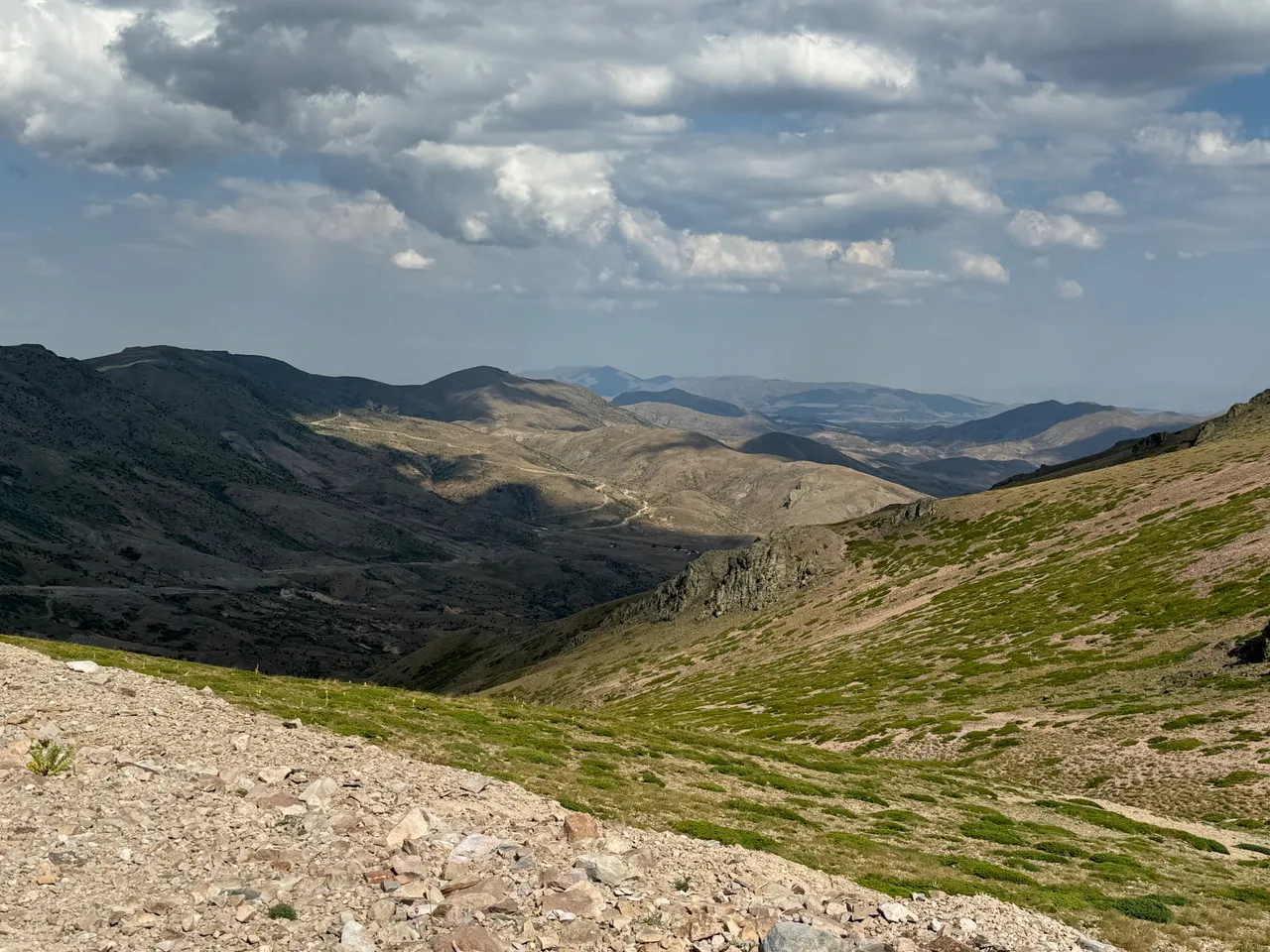
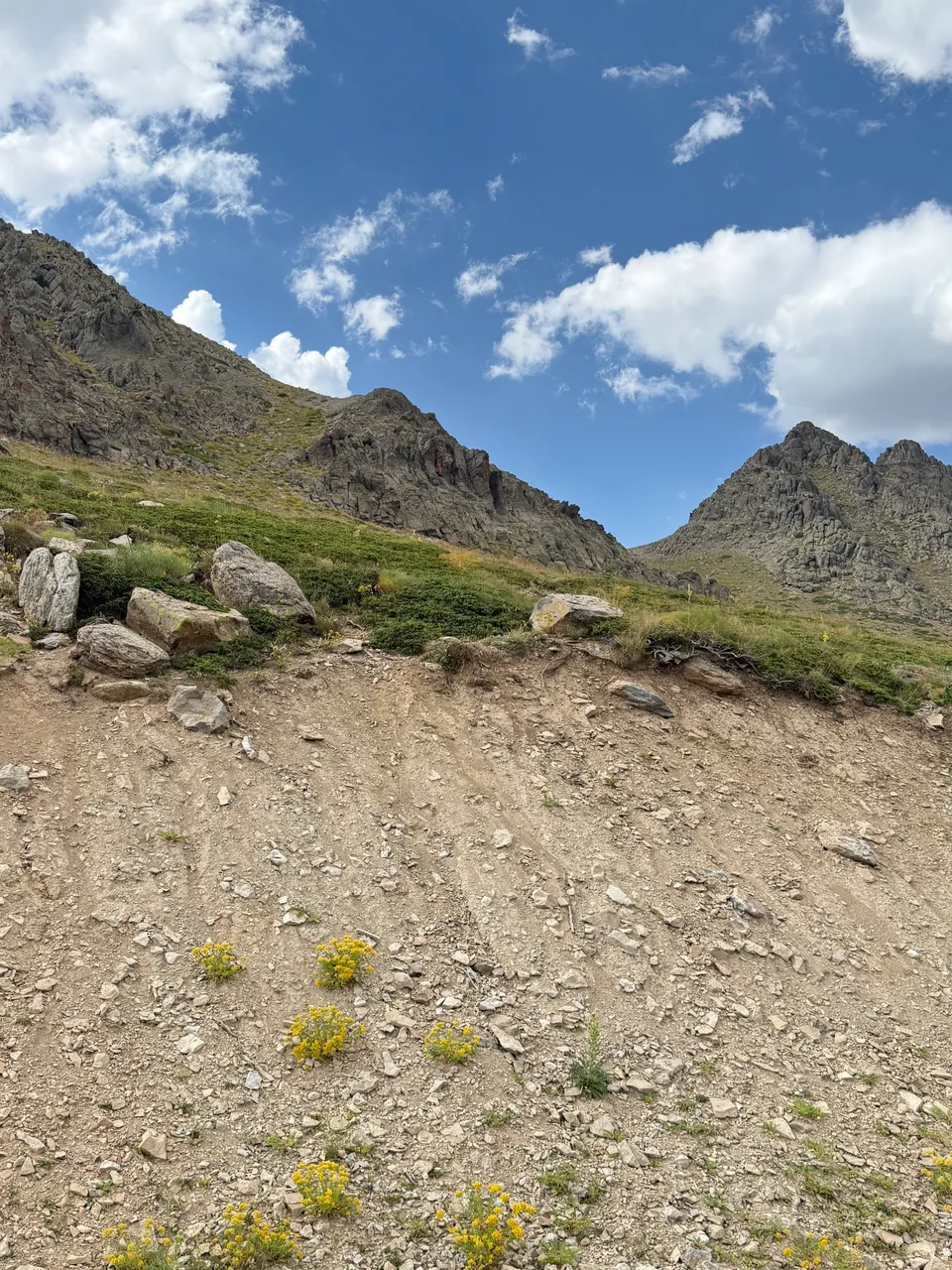
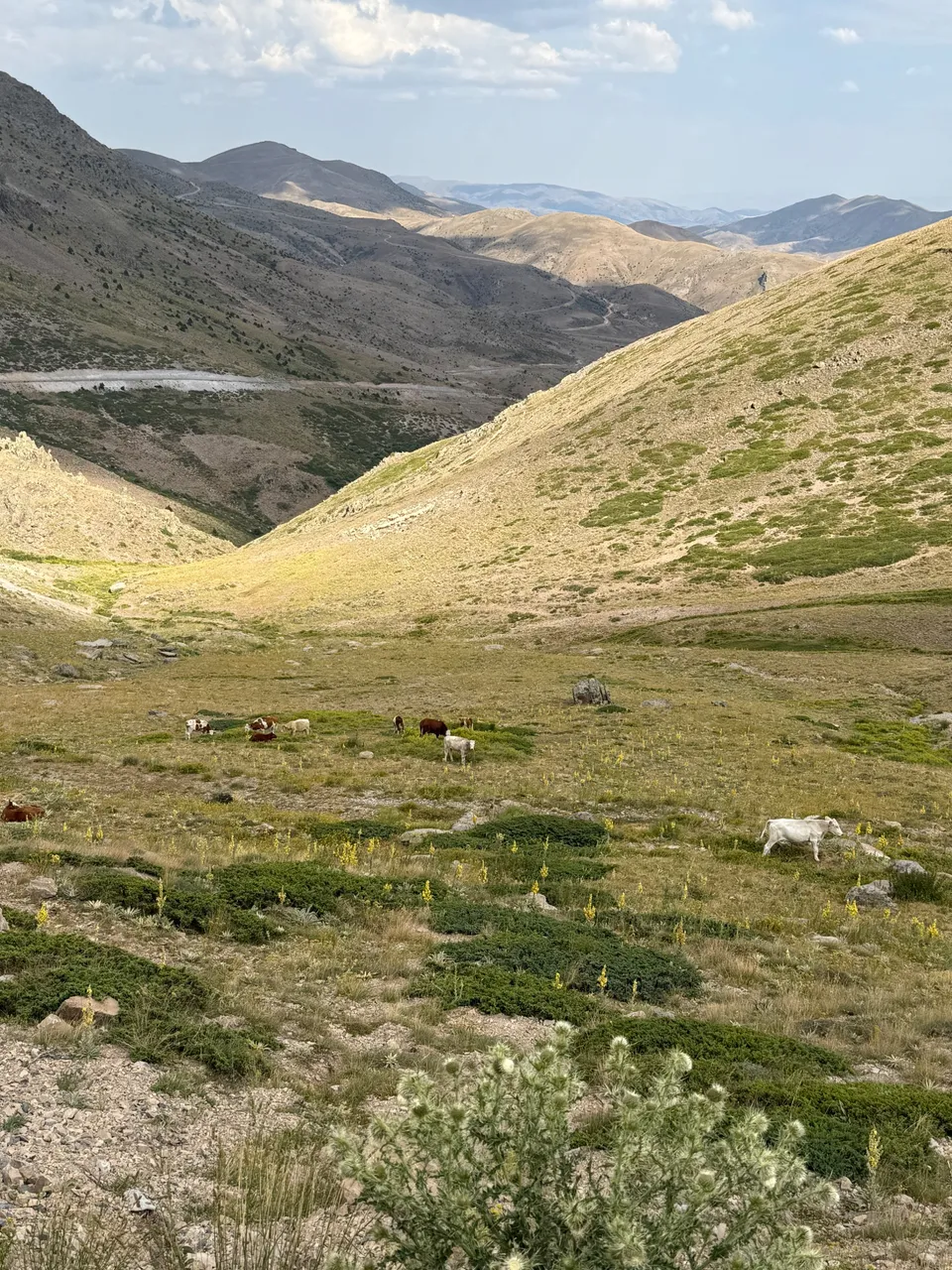
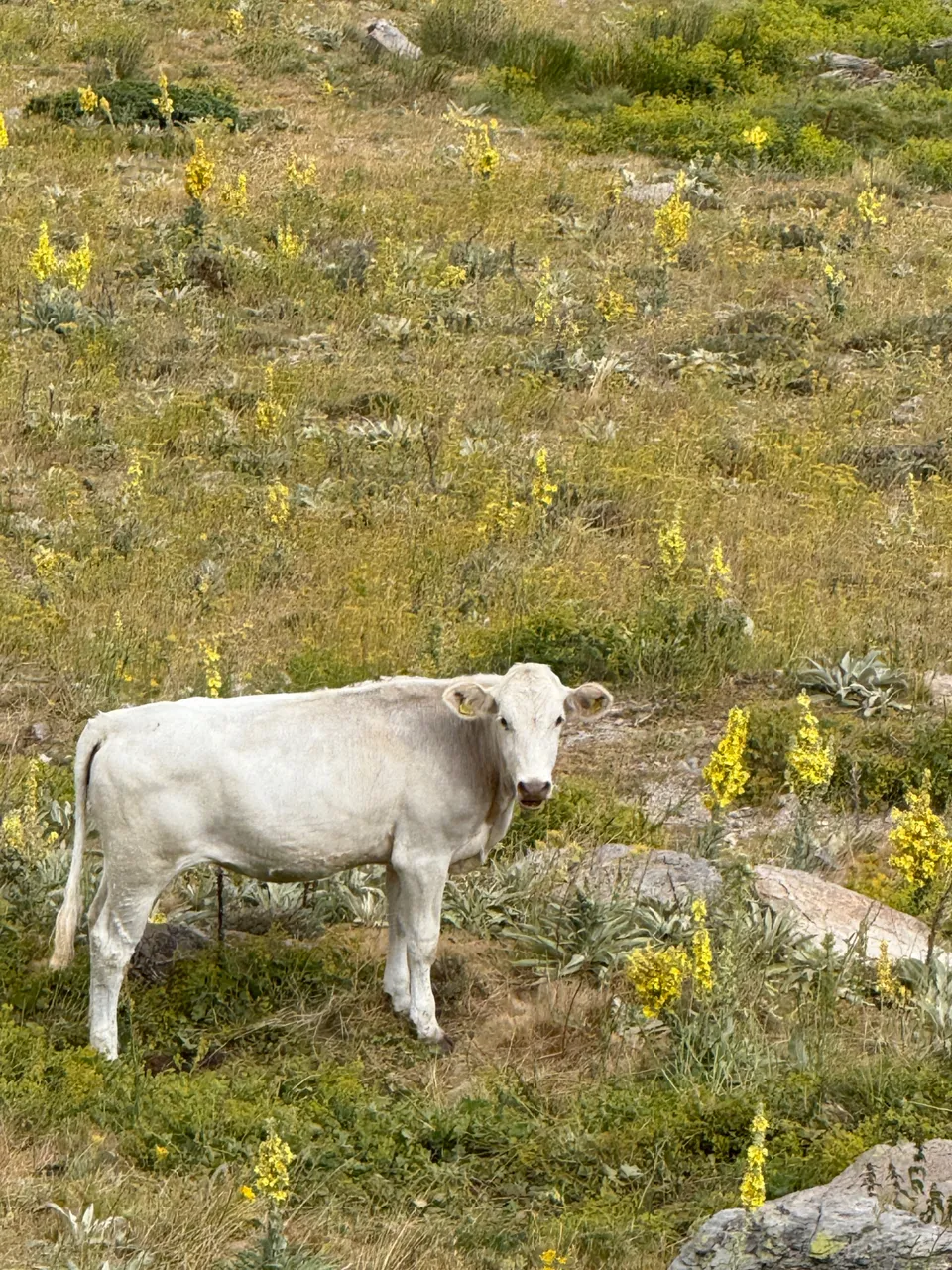
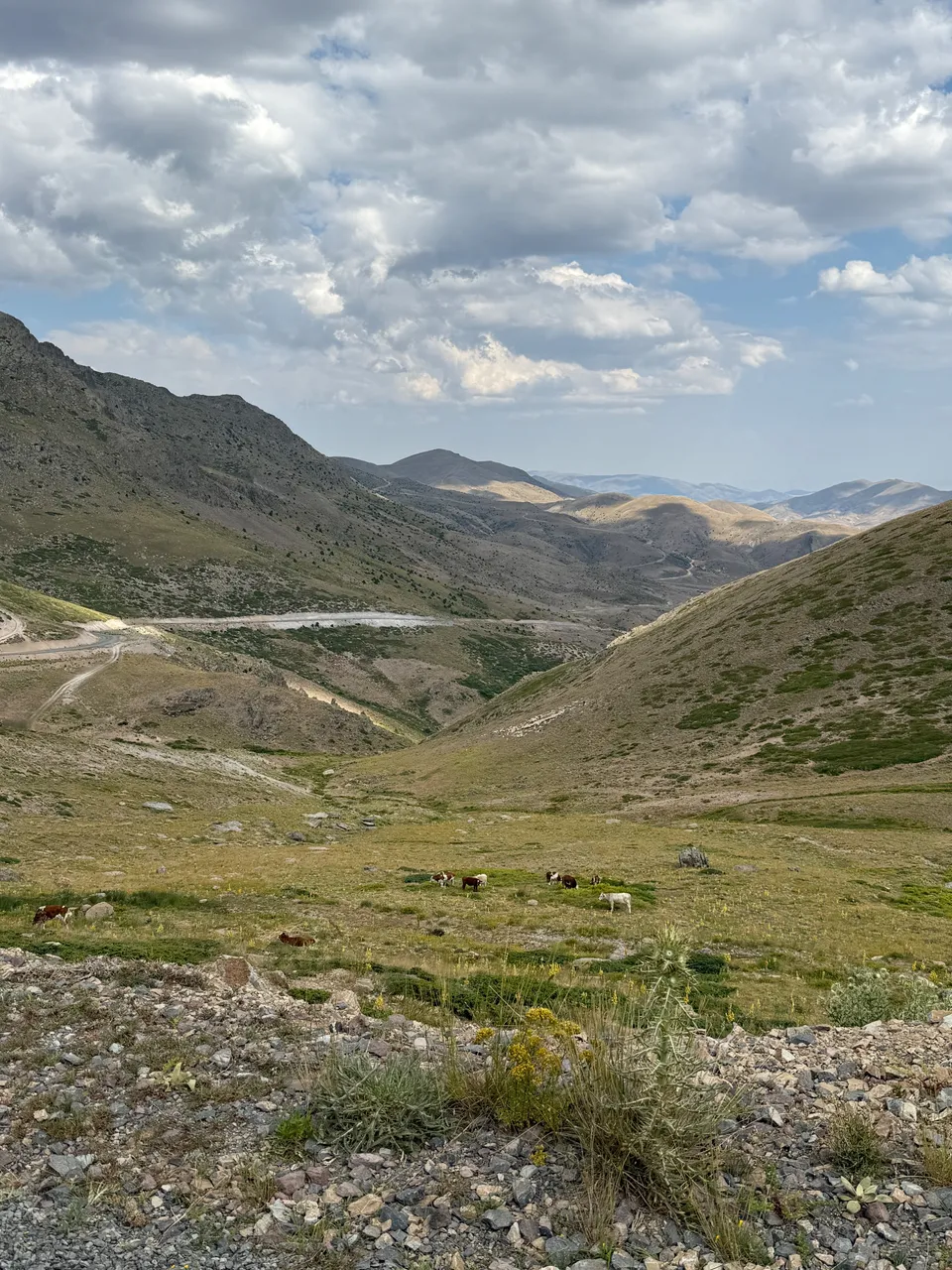
Walking among these boulders today, I always admire the view, each rock tells an ancient story of some movement over the years, for a long time these mountains smoked, and then nature took over. The hard rocks remained, protected, the soft layers disappeared. Now we see a rocky landscape covered only with moss and small bushes, with large windows of dry grass. All this forms a rough and soft mixture: complex volcanic rocks, shaped by millions of years of erosion. And although the volcano is no longer active, you can still feel the energy of the past in these graceful landforms.
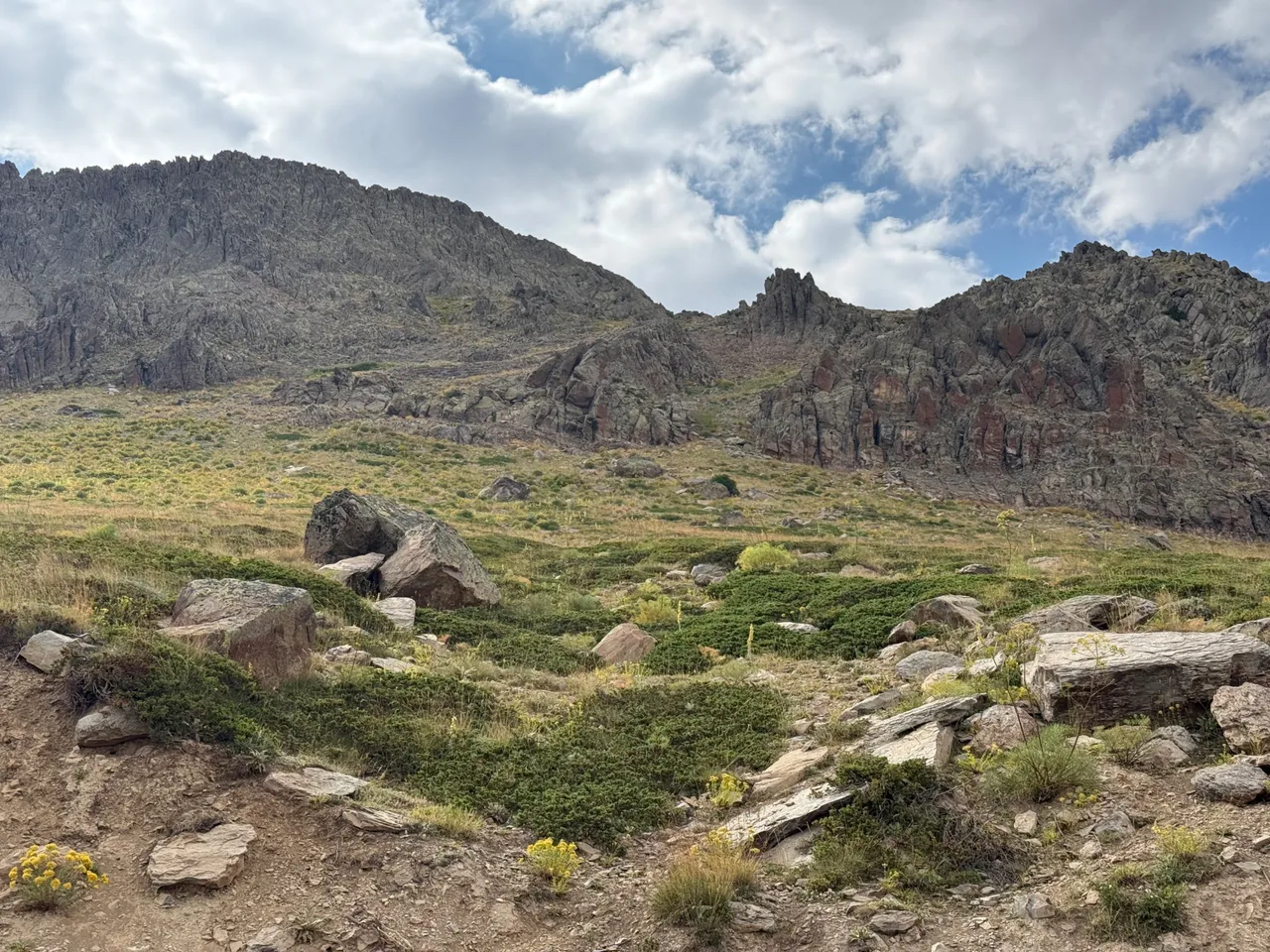
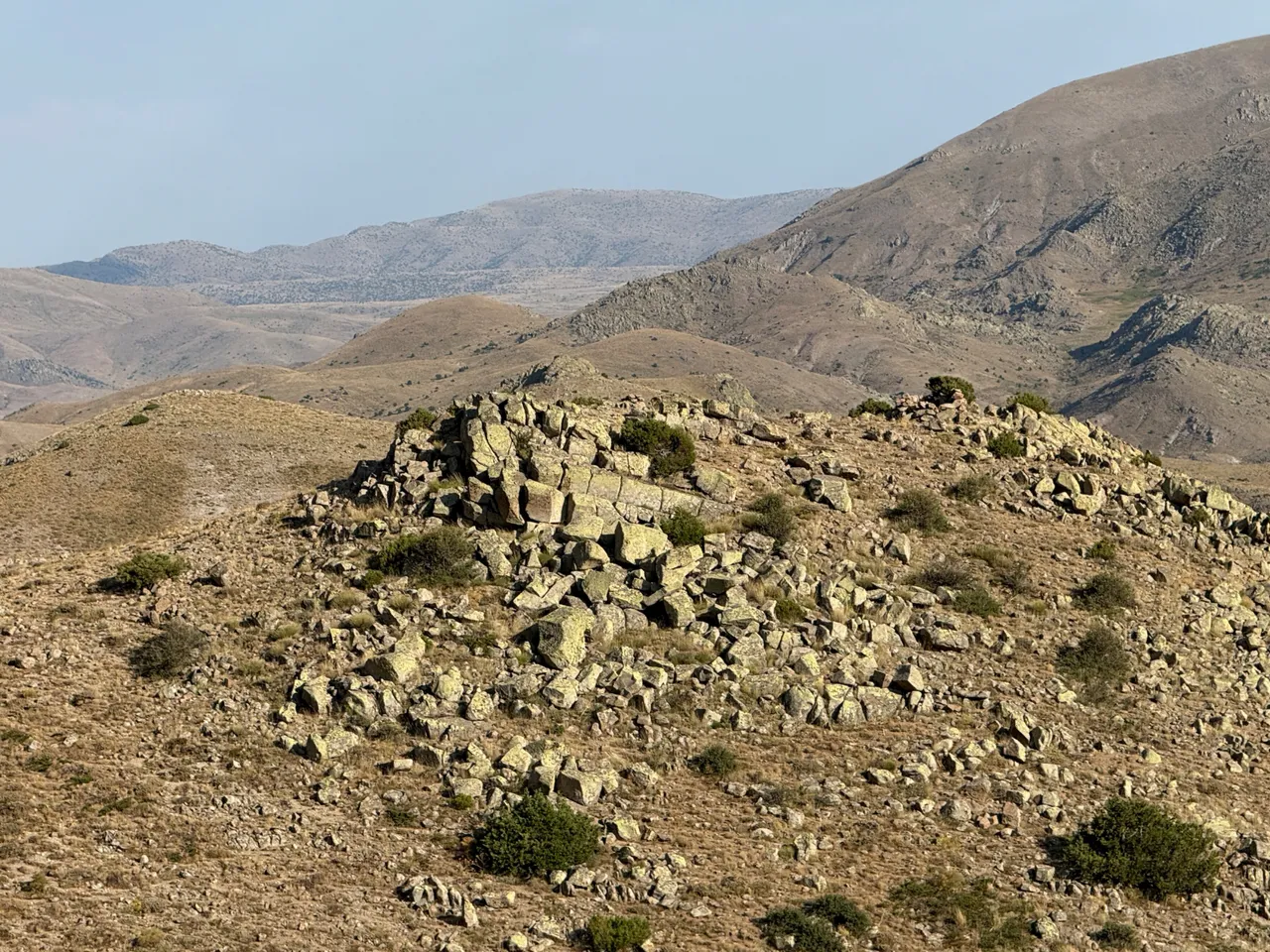
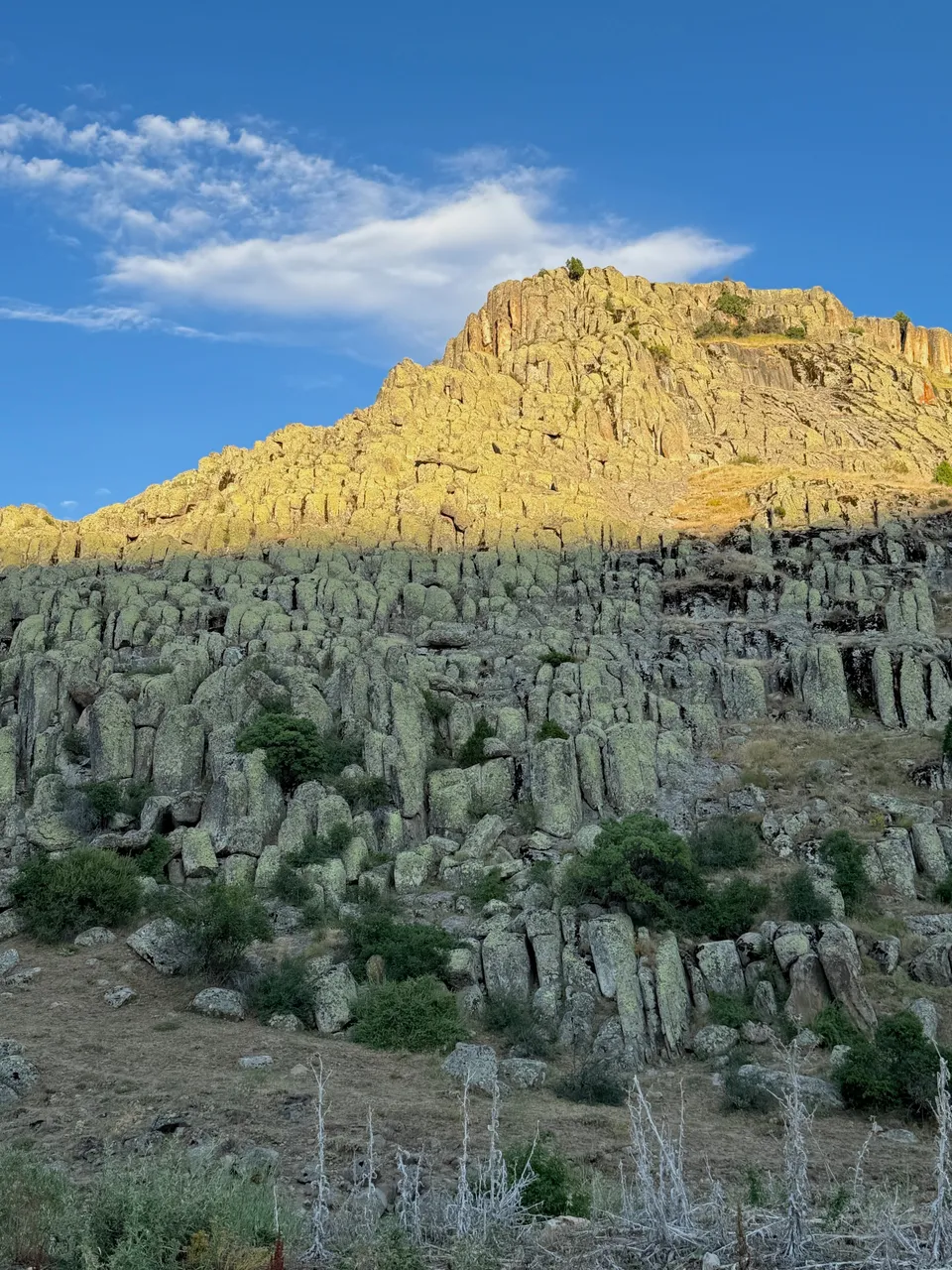
Today, this decor is presented in natural colors: gray, vegetable green, yellow. No red or orange, only calm, authentic shades associated with surface minerals and erosion that have long since faded the colors. But it is in these pastel colors that the uniqueness of these spaces lies. Something that sets it apart from the rest.